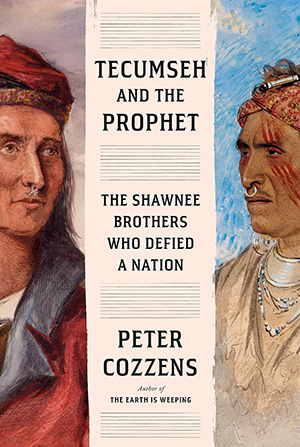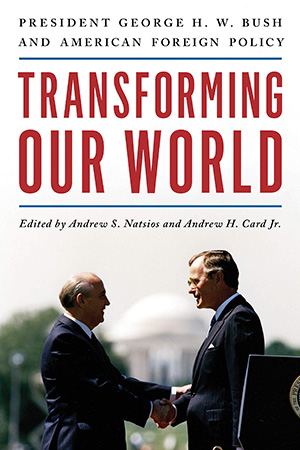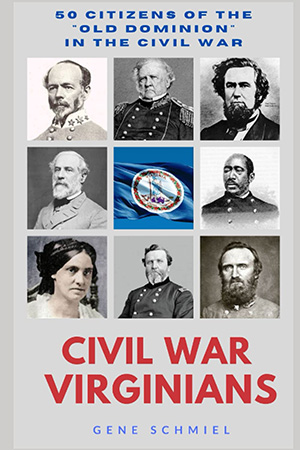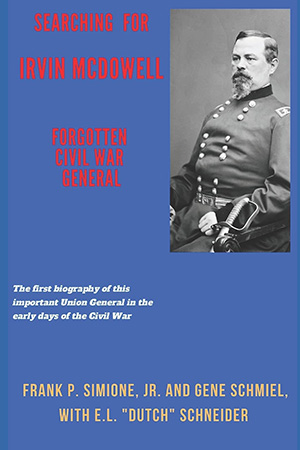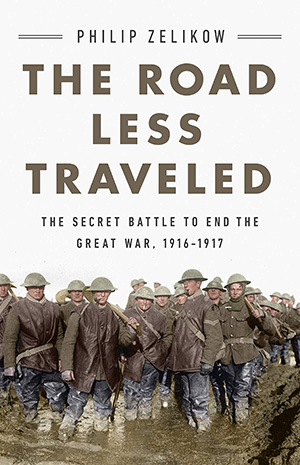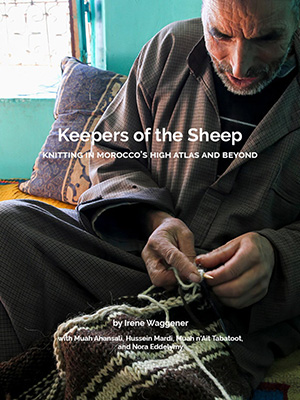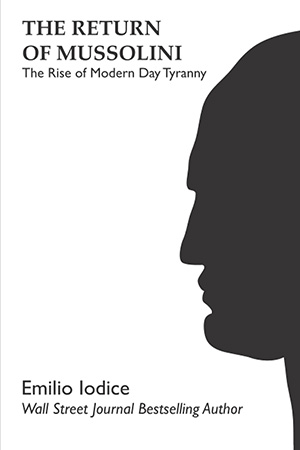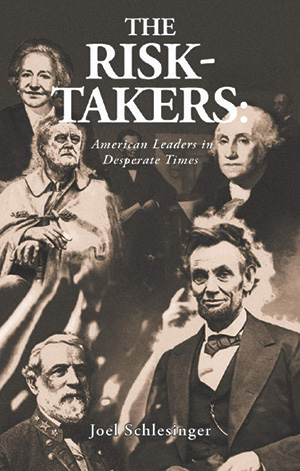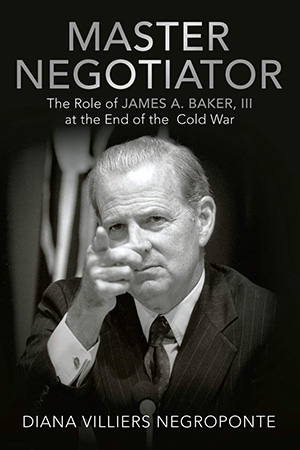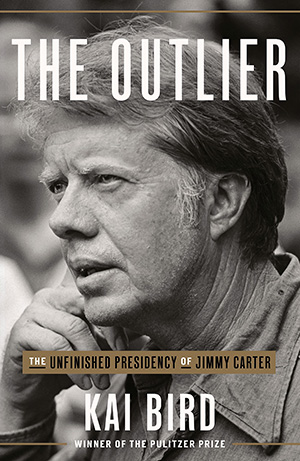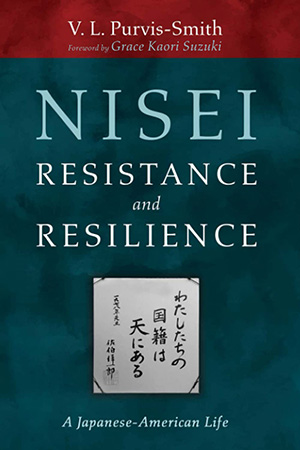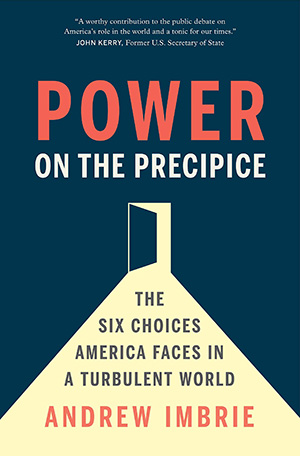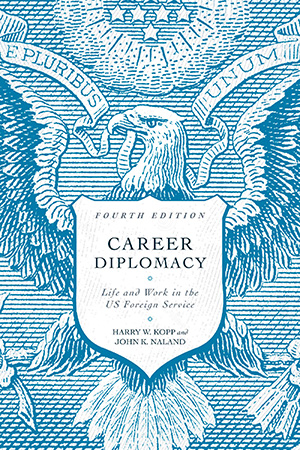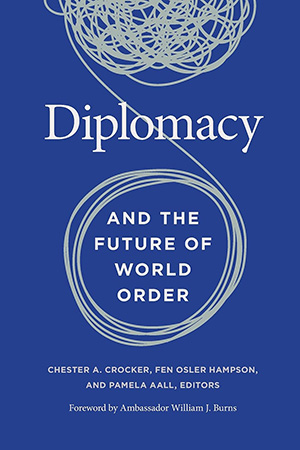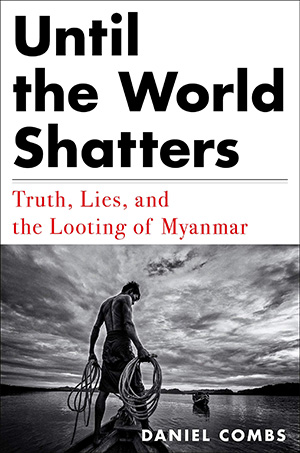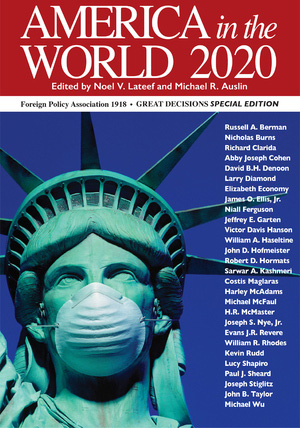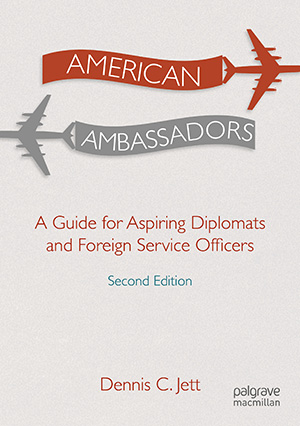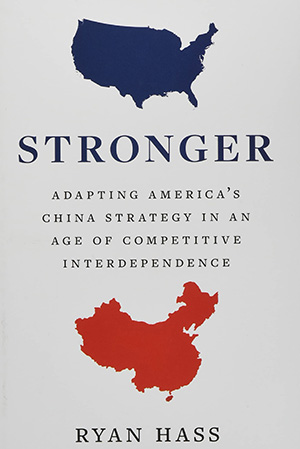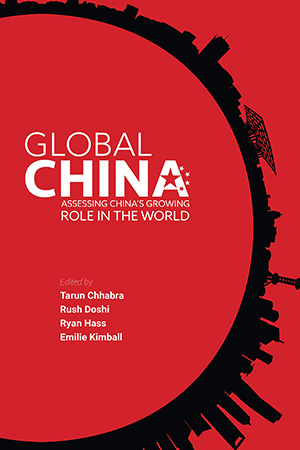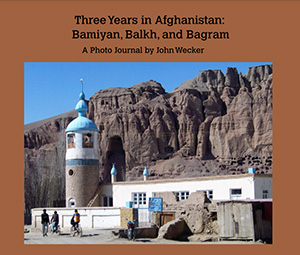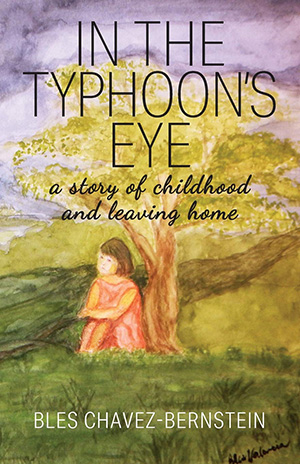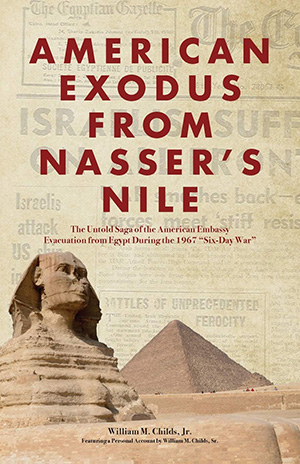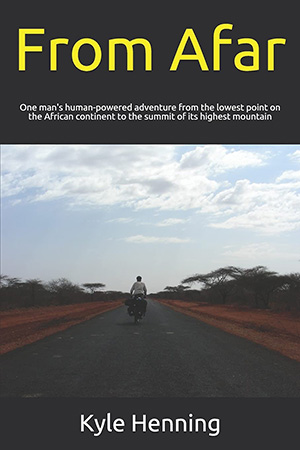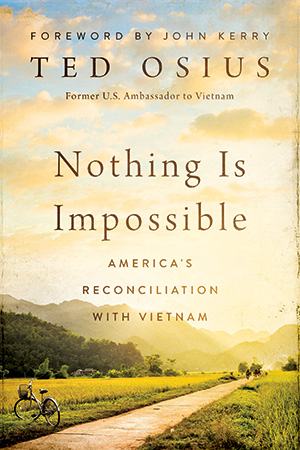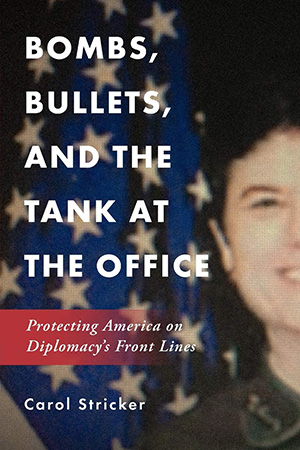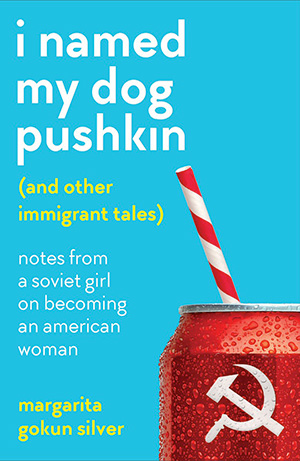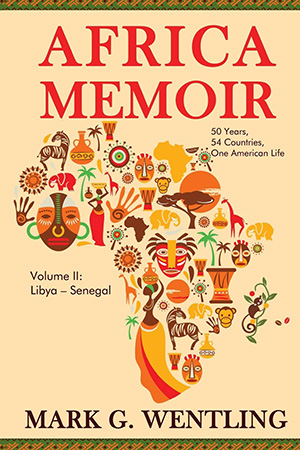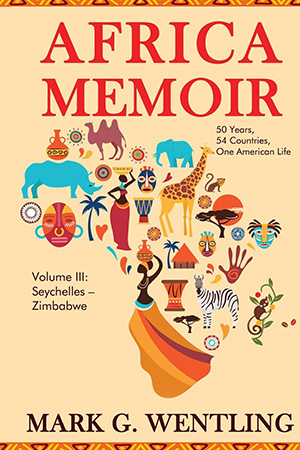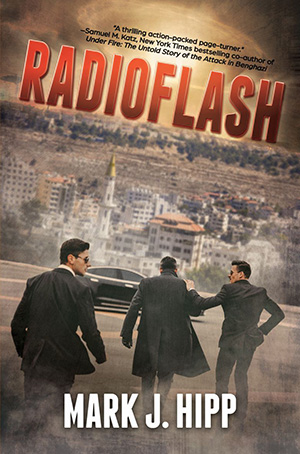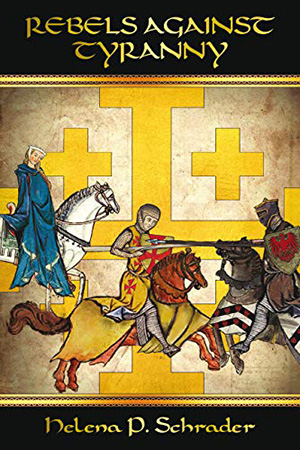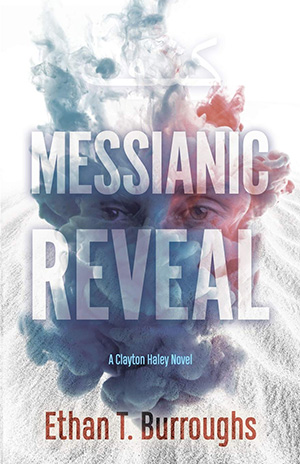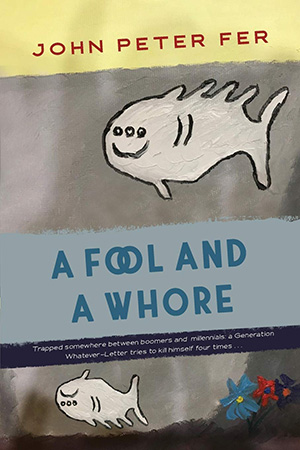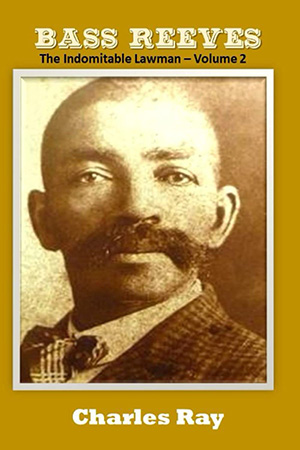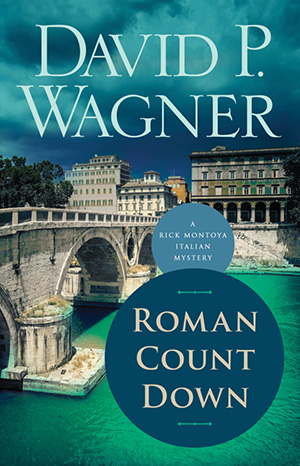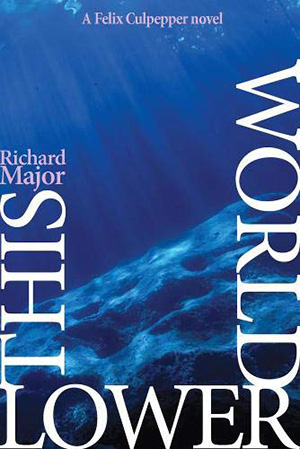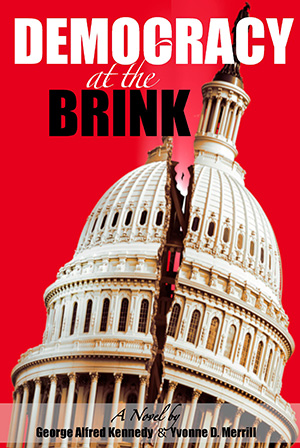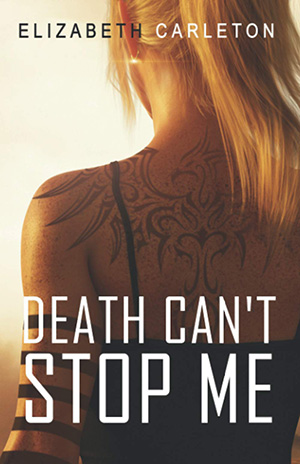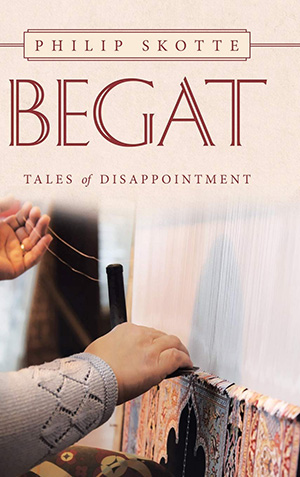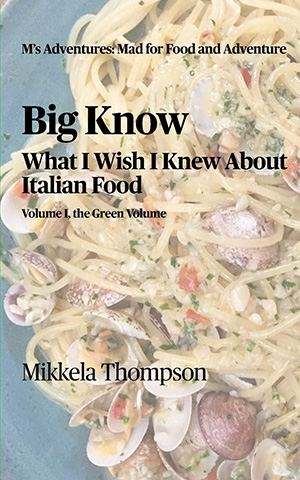In Their Own Write
We are pleased to present this year’s collection of books by Foreign Service authors and their families.

The Foreign Service Journal is pleased to present our 20th annual Foreign Service authors roundup in time for holiday orders.
Our primary purpose in compiling “In Their Own Write” for publication is to celebrate the wealth of literary talent within the Foreign Service community, and to give our readers the opportunity to support colleagues by sampling their wares. Each entry contains full publication details along with a short commentary.
This year our annotated list of books written, edited or translated by Foreign Service personnel and their family members stands at 100, up roughly 25 percent from last year—when, at 78 titles, it had nearly doubled from the year before. With the COVID-19 pandemic and associated lockdowns, we wonder, has the trend now gotten an additional boost from the ease and ubiquity of online communications?
This list of books published between 2019 and 2021 is not a comprehensive or definitive record of works by FS authors; as always, we rely on the authors themselves to bring their books to our attention.
This year we’re featuring 19 works of biography and history, 10 books on policy and issues, 19 memoirs, 31 novels and 10 books for children and young adults. Our “potpourri” section sports 11 books that range from tales about food in Peru to a user’s guide to the U.S. Coast Guard Academy. Please note that, unfortunately, because of the sheer volume of volumes, we have had to limit series of more than two books to a single entry.
As usual, we also include in this month’s focus a selection of recent books “of related interest” to diplomats and their families that were not written by FS authors.
This year’s roundup was assembled with the vital assistance of Publications Coordinator Dmitry Filipoff, Managing Editor Kathryn Owens and Contributing Editor Steven Alan Honley, who wrote the entries for this edition.
—Susan Brady Maitra, Senior Editor
BIOGRAPHY AND HISTORY
Tecumseh and the Prophet: The Shawnee Brothers Who Defied a Nation
Peter Cozzens, Knopf, 2020, $35/hardcover, e-book available, 560 pages.
In the first biography of Tecumseh to appear in more than two decades, award-winning historian Peter Cozzens plumbs the historical record to tell the untold story of the great Shawnee leader and his brother, Tenskwatawa, who co-authored the largest and most powerful pan-Indian alliance to challenge the white man’s takeover of America.
While Tecumseh was a brilliant diplomat and war leader, Cozzens writes, it was Tenskwatawa, heretofore dismissed as a charlatan and a drunk, who created a vital doctrine of religious and cultural revitalization that unified the disparate tribes of the Old Northwest. As the author states in the preface: “I have sought to redress these and other imbalances in the historical perception of the Shawnee brothers.”
The story of the two most significant siblings in Native American history takes us into the chaos and violence that characterized the young republic, when settlers spilled across the Appalachians to bloody effect in their haste to exploit lands won from the British in the War of Independence, and disregarding their rightful Indian owners.
“Cozzens’ nuanced portrait stands as one of the best pieces of Native American history I have read,” says journalist and historian S.C. Gwynne, author of the bestsellers Empire of the Summer Moon and Rebel Yell.
Peter Cozzens is the author or editor of 17 acclaimed books on the American Civil War and the Indian Wars of the American West. A former Foreign Service officer, he served in Panama, Tijuana, Lima and Washington, D.C. In 2002 he received AFSA’s William R. Rivkin Award for creative dissent by a midlevel FSO.
Heroes of World War II: Richard E. Nugent, the 1st Brazilian Fighter Squadron, and 209 Others
T. Dennis Reece, Hellgate Press, 2019, $17.95/paperback, e-book available, 414 pages.
Why yet another book about World War II? The short answer is to pay tribute to some of the uniformed personnel who helped win the war but have not received proper recognition for their accomplishments. In the case of the 1st Brazilian Fighter Squadron, that statement needs one qualification. The unit has garnered considerable publicity, but most of the material is available only in Portuguese and therefore not accessible to most native English speakers.
Richard E. Nugent commanded the XXIX Tactical Air Command as it gave air support to the Ninth Army from the Siegfried Line to within 53 miles of Berlin. The squadron won the U.S. Presidential Unit Citation (formerly the Distinguished Unit Citation), while 209 individuals, serving in various land or air units, who took part in the campaign won at least one award for heroism, ranging from the Distinguished Service Cross to the Soldier’s Medal.
Using official and unofficial sources, T. Dennis Reece presents these accomplishments, largely forgotten about since 1945, for the gratitude and inspiration of future generations.
T. Dennis Reece is a retired Department of State Foreign Service officer who served in Brazil, the Soviet Union, Saudi Arabia, the Dominican Republic, Cabo Verde, Guyana and Washington, D.C. He previously published works on bomb disposal from 1942 to 1946 and the Ohio River flood of 1884.
Modern Paraguay: Uncovering South America’s Best Kept Secret
Tomás Mandl, McFarland, 2021, $39.95/paperback, e-book available, 255 pages.
To the limited extent people have thought about Paraguay, they have called it variously the “least-known country in Latin America,” “an island surrounded by land” and “the South American Tibet.” For many years, foreign writers and journalists who ventured there described it as an enigmatic land where a peculiar people endured calamities and Nazis sought refuge.
While working for Embassy Asunción from 2016 to 2020, Tomás Mandl traveled through the country, meeting leading minds and sifting through data. But it was not until March 2017, when political unrest led to the burning of the Paraguayan Congress and a lockdown, that he realized no authoritative history of the country existed, either in English or Spanish. So he decided to write one himself.
Drawing on more than 40 interviews with historians, political scientists, economists, journalists and diplomats, this book provides a timely assessment of Paraguay’s strengths, challenges and developmental outlook, and their implications for the world. Among other things, Mandl demolishes the myth that Paraguay was ever run by Nazi-imitators, noting that its authoritarian tendencies are homegrown and existed long before World War II.
Tomás Mandl was born in Virginia and raised in Uruguay. Currently a program officer with the Center for International Private Enterprise, he previously worked for the Department of State as a political specialist in Ecuador, Vietnam and Paraguay, accompanying his wife, Laura, a USAID Foreign Service officer. His articles in English and Spanish have appeared in World Politics Review and Revista Perspectiva, among other periodicals. He lives in Falls Church, Virginia.
Transforming Our World: President George H. W. Bush and American Foreign Policy
Edited by Andrew S. Natsios and Andrew H. Card Jr., Rowman & Littlefield, 2021, $38/hardcover, e-book available, 288 pages.
In his introduction to this compilation of 19 essays, editor Andrew S. Natsios notes that we are now three decades into the post–Cold War era. This book reflects on that transition, which took place during George Herbert Walker Bush’s presidency. The fact that both President Bush and several of the figures he chose to carry out his foreign policy have died, and others are advanced in years, underscores the need to capture their irreplaceable memories of events for the historical record before they are lost.
Most of the contributors will be familiar to Foreign Service Journal readers: former Secretaries of State James A. Baker III and Condoleezza Rice, Dennis Ross, Carla Hills and Philip Zelikow, to name but a few. Two distinguished retired ambassadors, both career Foreign Service officers, wrote chapters, as well: Thomas Pickering (“President George H. W. Bush and the United Nations”) and Edward D. Djerejian (“Constructing the Alliance to Liberate Kuwait”).
Collectively, the authors shed new light on Bush’s role in world events, his style of diplomacy, and the organization and functioning of his foreign policy team.
Andrew S. Natsios was director of the U.S. Agency for International Development’s Office of U.S. Foreign Disaster Assistance during the George H.W. Bush administration and USAID Administrator during the George W. Bush administration. Currently, he is an executive professor at the Bush School of Government and Public Service at Texas A&M University and director of the Scowcroft Institute of International Affairs.
Andrew H. Card Jr. held numerous positions at senior levels of government under three presidents, including service as President George H.W. Bush’s deputy chief of staff.
Civil War Virginians: 50 Characters from the “Old Dominion” in the Civil War
Gene Schmiel, independently published, 2021, $14.99/paperback, e-book available, 227 pages.
From America’s founding, Virginians looked upon themselves as a unifying link between North and South, even as sectionalism grew in the mid-19th century. Ironically, as Gene Schmiel explains in this book, the state’s reluctance to leave the Union led to the secession and admission to the Union in 1863 of what would become the new state of West Virginia.
Civil War Virginians is the eighth and last of the author’s series, Civil War Personalities: 50 at a Time. This volume profiles 50 Virginians who played critical roles in various fields during the war. Like the other books in the Civil War Personalities series, it offers readers unique insight into this pivotal American event and the era in which it occurred through the eyes of a wide range of participants.
Four other volumes in the series were also released this year. They are: Civil War Women—Underestimated and Indispensable: 50 Women Who Made a Difference in the “American Iliad”; Civil War Unsung Heroes and Other Key Actors “Behind the Scenes”: 50 Forgotten, but Influential, Civil War Men and Women; Civil War Ohioans: 50 Buckeyes Who Made a Difference in the “American Iliad”; and, The Civil War in Statuary Hall: Who Should Be Memorialized in the U.S. Capitol?
Gene Schmiel retired from the Foreign Service in 2002 after a 24-year career that included tours as chargé d’affaires in Djibouti, Bissau and Reykjavík, among many other assignments. Before joining the Service, he was an assistant professor of history at St. Francis University in Pennsylvania, and has taught at Marymount, Shenandoah and Penn State universities. Currently, he lectures at Civil War Round Tables and is also a speaker on cruises for American Cruise Lines on the Mississippi River and on the Southeast Coast.
Schmiel has specialized in the Civil War since the publication of his award-winning book, Citizen-General: Jacob Dolson Cox and the Civil War Era (2014). See his website for details: https://civilwarhistory-geneschmiel.com.
Searching for Irvin McDowell: Forgotten Civil War General
Frank P. Simione Jr. and Gene Schmiel, independently published, 2021, $19.99/paperback, 295 pages.
Gene Schmiel and co-author Frank Simione Jr. deem U.S. General Irvin McDowell a major actor in the Civil War for a short but critical period in the war’s early days, and say his life story deserves to be told and remembered. That task is severely hampered by the fact that McDowell did not write a memoir, and left few papers behind other than his official reports, a few letters and orders to and from others.
Nonetheless, Schmiel and his collaborator do a masterful job of giving the general his due via this book, the first biography devoted to him. A dutiful but limited officer, McDowell was chosen to lead the largest army in American history at the Battle of First Bull Run. The book covers his entire life, but focuses mainly on his military service in northern Virginia, including his lament on “what might have been.”
The Road Less Traveled: The Secret Battle to End the Great War, 1916-1917
Philip Zelikow, PublicAffairs, 2021, $30/hardcover, e-book available, 352 pages.
“Clear judgments and waffle-free language, as well as the novelty and importance of the subject, are what make this book such a fascinating read,” says former FSO Harry Kopp in his review of The Road Less Traveled in this issue. “Lessons for the statesman leap from these pages.”
In 1916, two years into the most terrible conflict the world had ever known, there was a chance to end it, saving millions of lives and changing the course of history. The German chancellor secretly sought President Woodrow Wilson’s mediation to end the war, just as British ministers and France’s president also concluded that the time was right. “Peace is on the floor waiting to be picked up!” the German ambassador to the United States said. That chance did not, however, materialize.
In The Road Less Traveled, Philip Zelikow explores this seldom-remembered moment, what he terms “the most consequential diplomatic failure in the history of the United States.” He does so in thrilling detail, documenting the misunderstandings, confusions, betrayals, egotism and cowardice that led to this failure with the help of memoirs, diaries, letters and other source materials left by the principals on both sides of the Atlantic.
A former career Foreign Service officer, Philip Zelikow worked on international policy in each of the five administrations from Ronald Reagan through Barack Obama. Currently, he is the White Burkett Miller Professor of History and J. Wilson Newman Professor of Governance at the Miller Center of Public Affairs at the University of Virginia.
Being in North Korea
Andray Abrahamian, Shorenstein Asia-Pacific Research Center, 2020, $19.95/paperback, e-book available, 200 pages.
If you’ve ever wondered what it’s really like to live and work in the Hermit Kingdom, then this is the book, and the author, for you. Andray Abrahamian, who speaks fluent Korean (“sometimes with a Pyongyang accent,” he notes), has read or written something about North Korea nearly every day for the past 15 years.
As its title indicates, Being in North Korea is full of stories he gathered during more than 30 trips to Pyongyang, where he and a buddy set up and ran Chosun Exchange, a nongovernmental organization that trains North Koreans in economic policy and entrepreneurship.
But that’s just the tip of the iceberg. During his decade of direct involvement with North Korea, Abrahamian also assisted an NGO start-up focused on tuberculosis prevention and ran sports tournaments. He seamlessly weaves together his own experiences with history lessons and analysis of the country’s politics, society and foreign relations. Yet he never loses sight of the humanity of his interlocutors, even the ones most devoted to the regime.
Andray Abrahamian joined the Foreign Service as a tandem with his wife, Victoria Cook, in 2020. He has published extensively on Asia issues; his first book, North Korea and Myanmar: Divergent Paths (McFarland, 2018), compares Asia’s pariah states. He is a nonresident fellow at the Korea Economic Institute, a visiting scholar at George Mason University Korea and a senior adjunct fellow at Pacific Forum. During the 2018-2019 academic year, he was the Koret Fellow in Korean Studies at Stanford University’s Shorenstein Asia-Pacific Research Center.
Keepers of the Sheep: Knitting in Morocco’s High Atlas and Beyond
Irene Waggener, 106 Meters from the Road, 2021, $40/paperback, 150 pages.
Readers of this fascinating book will learn about a knitting tradition that stretches back in time through many generations—possibly to the very origins of the craft. The collection of seven essays and 13 patterns will also give readers glimpses of life in a Moroccan village where knitting once played a critical role in helping the community survive harsh, snowy winters.
The patterns in this book include traditional designs by shepherds who want to share their knowledge with other knitters and future generations. In addition, Waggener’s research examines the history of knitting not just in Morocco, but across North Africa. Through historical accounts, linguistic clues and museum artifacts, some of which have not been available to the general public until now, she presents a holistic view of the craft in this region.
As requested by the shepherds who contributed their expertise to the book, the author will donate a portion of the proceeds from its sale to a women’s cooperative based in Ait Bouli, Morocco. Cooperative Ibilou will use the funds for community development projects benefiting everyone in the village.
Irene Waggener enjoys researching and writing about knitting traditions around the world. Her work draws on participant observation and interviews, as well as historical, linguistic and archaeological evidence to situate the craft within the broader themes of economy, society and politics. She has lived in Japan, Niger, Jerusalem and Morocco, and currently lives in Armenia with her husband, Foreign Service Officer Josh Waggener.
The Return of Mussolini: The Rise of Modern Day Tyranny
Emilio Iodice, independently published, 2021, $18/paperback, e-book available, 206 pages.
Precisely a century after fascist Benito Mussolini was first elected to the Italian parliament, presaging the ascent of Adolf Hitler just a few years later, Emilio Iodice declares that grim history appears to be repeating itself today in countries around the world. He singles out the Chinese Communist Party as the chief threat to global democracy and urges the West to do all it can to counter Beijing’s malign influence across the globe.
To make his case, Iodice painstakingly traces Mussolini’s rise to power in the 1920s, then draws direct parallels to our world: “Nationalist influences are rising. Once again, the forces of communication are spreading the words and ideas of totalitarianism. Instead of speeches on balconies, we now have social media, which actively circulate and intensify rumors and falsehoods.”
Emilio Iodice, a retired Foreign Service officer, is vice president at Loyola University in Chicago and director of the school’s John Felice Rome Center. As an FSO, he served in France, Brazil, Mexico and Spain. He is the author of seven previous books, including Profiles in Leadership: From Caesar to Modern Times (2013), When Courage Was the Essence of Leadership: Lessons from History (2019) and The Commander in Chief: The Qualities Needed of Leaders of Freedom-Loving Nations in the 21st Century (2020).
Visit http://www.iodicebooks.com/ for more information.
The Risk-Takers: American Leaders in Desperate Times
Joel Schlesinger, Newman Springs Publishing, 2020, $18.95/paperback, e-book available, 186 pages.
The five essays in this book assess the organizational leadership skills that Abraham Lincoln, George Washington, Robert E. Lee, Katharine Graham and Franklin D. Roosevelt each exhibited at pivotal moments in American history.
Joel Schlesinger approaches leadership as an interactive process in which leaders and followers work together in difficult situations or complex environments to accomplish common goals. As he sums it up in his introduction, “One way to define leaders may be to say that we may never understand exactly why followers follow leaders, but in the end, leaders resonate; they find a way, in whatever circumstance, to connect with followers and leverage their contributions.” (italics in the original)
These essays suggest that there is a holistic unity to leadership, and that the four attributes of status, esteem, technical competence and organizational leadership skills—always present in some measure—help leaders connect with followers. Of course, the proper mix of these four qualities depends on the nature of the followers and the demands of the crisis.
Joel Schlesinger is a retired Senior Foreign Service officer with the U.S. Agency for International Development. During his tour as USAID mission director in Mali, Vice President Al Gore recognized the mission for the most innovative strategic planning and managerial reengineering anywhere in the agency. Schlesinger later served as deputy assistant administrator for legislative and public affairs. He holds a doctorate in organizational leadership and is currently a full professor at the Jack Welch Management Institute on Leadership.
Master Negotiator: The Role of James A. Baker, III at the End of the Cold War
Diana Villiers Negroponte, Archway, 2020, $20.99/paperback, e-book available, 418 pages.
Diana Villiers Negroponte zeroes in on the 61st Secretary of State’s diplomacy in this book, aptly titled Master Negotiator: The Role of James A. Baker, III at the End of the Cold War.
Although The Man Who Ran Washington by Peter Baker and Susan Glasser (see the June FSJ review) devotes several chapters to James A. Baker III’s three years as Secretary of State (1989-1992), the authors’ goal of surveying Baker’s entire, sprawling career keeps them from doing full justice to his diplomatic achievements—and that is what Negroponte accomplishes here.
Reviewing in this edition, Joseph L. Novak says it “returns repeatedly to the point that Baker’s close relationship with George H.W. Bush, the 41st president who died in 2018, served as the bedrock of his empowerment as Secretary of State.” Further, in explaining Baker’s effectiveness as America’s top diplomat, says Novak, “Negroponte emphasizes that he was ‘tough, determined and competitive,’ and highlights his laser-like focus on pivotal issues.”
Diana Villiers Negroponte, a Global Fellow at the Woodrow Wilson Center, has lectured on international politics at several universities. She is also the author of Seeking Peace in El Salvador: The Struggle to Reconstruct a Nation at the End of the Cold War (2012). She dedicates this book to her husband, retired Ambassador John D. Negroponte—this year’s recipient of AFSA’s Lifetime Contributions to Diplomacy Award—with whom she ably partnered at postings around the world for many years.
The Outlier: The Unfinished Presidency of Jimmy Carter
Kai Bird, Crown, 2021, $38/hardcover, e-book available, 784 pages.
For decades after his defeat in 1980, Jimmy Carter’s one-term presidency was often unfairly labeled a failure. This was in part because he was not just an outsider in Washington but, as Kai Bird’s biography rightly labels him, an outlier. Not only was Carter the first president in a century to grow up in the heart of the Deep South, but his born-again Christianity made him the most openly religious president in memory.
Carter was also an outlier for his unshakable belief in doing the right thing, an approach that ultimately cost him reelection but also produced diplomatic triumphs such as the Panama Canal Treaty and the Camp David Accords. Bird traces the arc of his administration, from his aggressive domestic agenda to his controversial foreign policy record, and shows us how he tackled issues still hotly debated today—from national health care and growing inequality and racism to the Israeli-Palestinian conflict.
Drawing on interviews with Carter and members of his administration, and recently declassified documents, Bird delivers a profound, clear-eyed evaluation of a leader whose legacy has arguably been deeply misunderstood.
The son of the late FSO Eugene Bird, Kai Bird is an award-winning historian and journalist. In addition to serving as executive director of the Leon Levy Center for Biography, he is an acclaimed author who won the Pulitzer Prize for Biography for American Prometheus: The Triumph and Tragedy of J. Robert Oppenheimer (co-authored with Martin J. Sherwin, 2005).
Nisei Resistance and Resilience: A Japanese-American Life
V.L. Purvis-Smith, Wipf and Stock Publishers, 2021, $39/paperback, 398 pages.
Although born almost two decades apart, Ginny Purvis-Smith, the author of this biography, and Allen Maruyama, its subject, are both members of the “Silent Generation.” They also both grew up on the high plains of southeastern Colorado, are descendants of immigrants, attended the same elementary school in their early years, were members of the same small-town church, attended the same seminary and were ordained as ministers in the Presbyterian Church.
Not until her friendship with Maruyama began in 2007, though, did Purvis-Smith begin to understand how differently the two occupied the shared layers of their respective histories. Even though the Maruyamas escaped the mass relocation and internment so many of their fellow Japanese Americans endured during World War II, they still suffered abuse and discrimination. The author emphasizes that this book is Allen’s story, primarily as he told it in more than 30 interviews she recorded with him and Rose, his wife of 63 years, and then transcribed.
V.L. Purvis-Smith (Ginny) is the spouse of Terry Purvis-Smith, who entered the Foreign Service in 1999 and retired in 2006. She directed the American English Language program in Dakar while they were posted in Senegal (1999-2001), worked in crisis management support at Main State (2001-2003), and then taught at the University of the Bahamas when they were posted to Nassau (2003-2006). She is also the author of Greenwood Riven (2016), a historical novel based on the life of Allen Maruyama.
Spies, Bombs, and Beyond: A Walking History of Washington DC’s Tenleytown
Mark Fitzpatrick, independently published, 2020, $19/paperback, e-book available, 146 pages.
Those who know retired Foreign Service Officer Mark Fitzpatrick for his expertise on nuclear diplomacy may be surprised by the subject matter of his latest book: his neighborhood.
When the pandemic hit in the spring of 2020, he began setting out each day on a different walk from his home in the Tenleytown–American University Park area of Northwest Washington, D.C. For seven weeks, he posted daily narratives on Facebook about those excursions, and friends encouraged him to compile and publish those postings as a book.
Fitzpatrick notes that Tenleytown has many more places of local interest worthy of narration, but in general, he sought to tell stories that also would appeal to larger audiences. He revised many of the original tales and added a score more for publication.
Part IV, “Diplomacy and Espionage,” will likely be of particular interest for Foreign Service readers, for it is full of the spies and bombs the book’s title promises. But the whole collection of historical vignettes is worth reading. Fitzpatrick says: “As a concerned citizen, I am keen to understand the roots of disparities and racial cleavages in our society. The national awakening to Black Lives Matter took place while I was writing my stories … [and is also] reflected in my selection of sites to write about.”
During 26 years of service as an American diplomat, Mark Fitzpatrick served in Seoul, Tokyo, Wellington, Vienna and Washington, D.C. After retiring from the Foreign Service, he joined the London-based International Institute for Strategic Studies, producing 10 books about nuclear dangers and appearing frequently on international media outlets.
POLICY AND ISSUES
History Shock: When History Collides with Foreign Relations
John Dickson, University Press of Kansas, 2021, $34.95/hardcover, e-book available, 256 pages.
Although John Dickson never quotes William Faulkner, the novelist’s rueful observation that “The past is never dead; it’s not even past” suffuses History Shock: When History Collides with Foreign Relations. (His title is a riff on Alvin Toffler’s Future Shock, which addresses the opposite challenge: helping humanity prepare for profound change as it unfolds.)
Drawing on a quarter-century of experience as a public diplomacy officer, principally in Latin America and Africa, Dickson cites chapter and verse on how important historical events can be viewed differently in the United States and in other countries.
As Dickson admits, part of the problem is that until they take up their postings, even highly educated, cosmopolitan Foreign Service personnel sometimes have not heard of historic events that continue to shape, or warp, other nations decades and centuries later. As a result, they have no capacity to assess their impact on relations with the United States, let alone offer helpful recommendations to Washington policymakers on taking them into account in bilateral and multilateral diplomacy.
Dickson does not mince words in urging the Foreign Service to improve its training, by producing a playbook or operating manual with systematic case studies for its officers. History Shock not only offers a model for such case studies, but sets forth an interpretive framework for remedying this information deficit, including recommendations for strengthening historical literacy within the Foreign Service.
John Dickson was a public diplomacy officer with the U.S. Information Agency (1984-1999) and Department of State (1999-2010), whose postings included Mexico, Cuba, Canada, Nigeria and South Africa. He lives in Pittsfield, Massachusetts.
Power on the Precipice: The Six Choices America Faces in a Turbulent World
Andrew Imbrie, Yale University Press, 2020, $27.50/hardcover, e-book available, 272 pages.
Andrew Imbrie poses a series of existential questions about America’s identity and future in this thoughtful book. He begins with the premise that U.S. power and influence are in decline, for reasons that are structural as much as they are contingent on any particular administration or set of policies.
That, in turn, means this discouraging trend could reverse itself later in the century if, for instance, demographic pressures, debt and diminishing resources constrain China’s economic growth and ability to assert its will globally. Whatever the future holds, however, Imbrie emphasizes that national decline is not an abstract phenomenon: It is something lived and felt by people who make real choices every day.
To frame the stakes and bring them to life, he introduces six conscientious leaders in the United States who have wrestled with these choices firsthand: a soldier, an innovator, a diplomat, a negotiator, a scholar and a statesman. His hope is that readers will come to see a part of their story in the stories they find in these pages, and perhaps ask similar questions about the choices facing America today.
Andrew Imbrie, the son of a U.S. Foreign Service officer, is a senior fellow at Georgetown’s Center for Security and Emerging Technology, where he teaches foreign policy speechwriting and rhetoric to graduate and undergraduate students. He previously served as a member of the Policy Planning Staff at the State Department, where he was a speechwriter to Secretary of State John Kerry. Imbrie has lived in Amman, Paris, London, Brussels, Rome and Washington, D.C.
Career Diplomacy: Life and Work in the US Foreign Service, Fourth Edition
Harry W. Kopp and John K. Naland, Georgetown University Press, 2021, $29.95/hardcover, e-book available, 280 pages.
It is a sign of just how successful, and necessary, this book is that it has gone through four editions in just 13 years. Soon after the last revision in 2017, President Donald Trump’s administration delivered shocks to the traditional norms and standards of American diplomatic practice that continue to reverberate today, calling into question assumptions about the nature of Foreign Service work that had long been taken for granted.
This edition helps tell that story of reinvention, capturing recent changes in the Foreign Service ranging from how to get in to what to expect throughout the course of a career. And as previous editions have done, Career Diplomacy describes the Foreign Service as an institution, a profession and a career. It provides a full picture of the organization, including its history and its role in American foreign affairs. Most of all, though, it is a guide to the Foreign Service, written by two insiders who speak frankly about its weaknesses, as well as its strengths.
Harry W. Kopp, a former Foreign Service officer, served as deputy assistant secretary of State for international trade policy in the Carter and Reagan administrations. He is a frequent contributor to The Foreign Service Journal and a member of its editorial board.
John K. Naland’s 29-year Foreign Service career included a stint as director of the Office of Retirement. A two-time former president of the American Foreign Service Association and the current AFSA retiree vice president, he is now a part-time lecturer at the Foreign Service Institute.
Diplomacy and the Future of World Order
Edited by Chester A. Crocker, Fen Osler Hampson, and Pamela Aall, Georgetown University Press, 2021, $36.95/paperback, e-book available, 376 pages.
In his foreword to what he calls “a timely and important book about the diplomacy of conflict management,” retired Ambassador William J. Burns (a former Deputy Secretary of State who is currently director of the Central Intelligence Agency) notes that the 19 contributors to this volume do not always agree on how diplomacy can best cope with great-power competition and threats to the state system itself.
But they share a broad consensus on two points: the centrality of human agency, and the role of major states in determining which scenario is realized. These factors will determine the “space” available for the important contributions to peacemaking by international and regional bodies and medium-sized to small states, as well as by civil society and nongovernmental organizations.
Besides Ambassador Burns, the other Foreign Service contributor is retired Ambassador Chas W. Freeman, a familiar name to Foreign Service Journal readers. Ambassador Freeman’s bracing chapter delves into “Sino-U.S. Interactions, Past and Future,” and finds little ground for optimism.
Chester A. Crocker is the James R. Schlesinger Professor of Strategic Studies at Georgetown University’s School of Foreign Service, where his teaching focuses on international conflict management and mediation. His many senior government positions include eight years as assistant secretary of State for African affairs (1981-1989).
Fen Osler Hampson is Chancellor’s Professor at Carleton University in Ottawa and president of the World Refugee & Migration Council. Pamela Aall is senior adviser for conflict prevention and management at the U.S. Institute of Peace and an adjunct professor at American University.
International Education at the Crossroads
Edited by Deborah N. Cohn and Hilary E. Kahn, Indiana University Press, 2021, $30/hardcover, e-book available, 296 pages.
A reflection on the past, present and future of international education, this collection of 26 essays grew out of Indiana University’s bicentennial symposium, “International Education at the Crossroads,” in 2018. Experts in language, area and global studies; policymakers; international education leaders and others gathered there to celebrate the 60th anniversary of the National Defense Education Act and the U.S. Department of Education’s Title VI programs. The latter have expanded language and area studies at all levels of education across the United States, programs in which Indiana University has long been a leader.
The authors bring a variety of viewpoints to show how international education is an imperative for the future of learning. They also call for a stock-taking of the entire field given the broad sociopolitical changes underway in the country and the world.
Deborah N. Cohn is provost professor of Spanish and Portuguese and interim director of the College Arts and Humanities Institute at Indiana University. She is the author of The Latin American Literary Boom and U.S. Nationalism during the Cold War (2012) and History and Memory in the Two Souths: Recent Southern and Spanish American Fiction (1999). Her late father, Dave S. Cohn, served with USAID as a health and population Foreign Service officer from 1980 to 1999.
Hilary E. Kahn is associate vice chancellor for international affairs and associate professor of anthropology at Indiana University–Purdue University Indiana, as well as Indiana University’s associate vice president of international affairs. She is also editor for the Framing the Global book series with IU Press and past president of the Association of International Education Administrators.
Until the World Shatters: Truth, Lies, and the Looting of Myanmar
Daniel Combs, Melville House, 2021, $28.99/hardcover, e-book available, 400 pages.
In Until the World Shatters, author Daniel Combs takes us deep into one of the most enigmatic places in the world. Without cell phones and ATMs until at least 2012, when the country began emerging from isolation, Myanmar holds enormous wealth in the form of jade, gold, teak forests and other natural resources. It is also the scene of the longest-lasting armed conflict in the world, a now 70-year-long civil war between the central government and its fringes involving complex and deep-seated ethnic, religious, ideological and economic divides, as well as shadowy private international actors and many secrets.
To bring Myanmar’s history, politics and people into focus, Combs chronicles the lives of two individuals he met in 2017 and stayed in touch with through Myanmar’s three seasons—cold, hot and rain. One, Phoe Wa, a young photojournalist in the bustling city of Yangon, is pursuing his dream even as the government is jailing reporters and nationalist voices are on the rise. The other, Bum Tsit, a 30-year-old jade businessman in Myanmar’s far northern Kachin state, is caught between the insurgent army his family supports and the business and military leaders his career depends on.
Daniel Combs is an award-winning author and international security professional who joined the Foreign Service in 2018. Earlier, he studied Myanmar’s ethnic conflicts. He has also lived in and reported from Ethiopia, the Congo, Vietnam and Israel. The former editor of the Asia Pacific Affairs Journal, he has appeared on NPR and written for The Diplomat and Asia Times, among other publications.
America in the World 2020
Edited by Noel V. Lateef and Michael R. Auslin, Foreign Policy Association, 2020, $30/paperback, 128 pages.
In conjunction with the 2020 presidential election, the Hoover Institution and the Foreign Policy Association collaborated to put together this special edition of the publication that is the basis for the FPA’s annual Great Decisions program series to stimulate debate and discussion of U.S. foreign policy nationwide.
This collection of essays is meant to spark informed debate on the path forward for America in a world struggling with the urgency of the COVID-19 pandemic and profound geopolitical and technological shifts. Many of the contributors’ names will be familiar to FSJ readers: Ambassadors (ret.) Nick Burns and William J. Burns (no relation), as well as Larry Diamond, Niall Ferguson, Michael McFaul, Victor Davis Hanson, H.R. McMaster and Joseph S. Nye Jr., to name but a few.
Born into a Foreign Service family, Noel V. Lateef graduated from Princeton University’s Woodrow Wilson School of Public and International Affairs in 1978 and from Yale Law School in 1982. After a distinguished legal career, Mr. Lateef joined the Foreign Policy Association, where he is currently president and CEO. He is the editor of In Pursuit of Peace: Conflict Prevention and World Order (2016) and The Future of Higher Education in the Age of Globalization (2016).
Michael R. Auslin is the Payson J. Treat Distinguished Research Fellow in Contemporary Asia at the Hoover Institution of Stanford University. He is the author of Asia’s New Geopolitics: Essays on Reshaping the Indo-Pacific (2020).
American Ambassadors: A Guide for Aspiring Diplomats and Foreign Service Officers
Dennis C. Jett, Palgrave Macmillan, 2021, $34.99/paperback, e-book available, 321 pages.
The original 2015 edition of this book had a slightly different title: American Ambassadors: The Past, Present, and Future of America’s Diplomats. It focused on the nitty-gritty of the selection process, describing how Foreign Service officers become ambassadors by rising through the ranks, and why they typically make up about 70 percent of the total number of ambassadors. It also covered the other 30 percent: the political appointees who get the job because they helped elect the president by supporting him as a campaign contributor, a political ally or a personal friend.
In his preface to the second edition, Ambassador Dennis Jett makes no bones about his chief motivation for returning to the subject: former President Donald J. Trump.
“No, I’m not a fan of his. And one reason for this second edition is to discuss his impact on the appointment of ambassadors and how it varied sharply from past practice,” Jett says. “When it came to ambassadorial appointments, Trump’s approach was much the same story: doing what was best for him rather than the country. He appointed the highest percentage of political appointee ambassadors of any president since World War II.”
During Dennis C. Jett’s 28-year career as a State Department Foreign Service officer, he served as ambassador to Peru and Mozambique, among many other assignments. He is currently a professor of international relations and founding faculty member of the School of International Affairs at Penn State University. He is also the author of Why Peacekeeping Fails (2019) and Why American Foreign Policy Fails (2016).
Stronger: Adapting America’s China Strategy in an Age of Competitive Interdependence
Ryan Hass, Yale University Press, 2021, $27.50/hardcover, e-book available, 240 pages.
Ryan Hass harbors no illusions about Beijing’s revisionist ambitions, particularly those directed at coercing Taiwan’s 23 million residents to abandon their democratic principles and accept unification with the mainland. As a former political reporting officer for Xinjiang, he calls out the regime’s repression there, as well as its campaign to dilute the universal reach of values that he promoted as an American diplomat. He also sees plainly the unfair nature of China’s state-led mercantilist economic model and its effects on hardworking Americans.
Yet, as Hass observes, outrage is an ineffective emotion for managing relations among great powers. Instead, he advocates competitive interdependence as the framework for understanding the nature of U.S.-China relations. And he is refreshingly optimistic that relations can improve, observing that “no immutable diplomatic laws of gravity determine that intensifying competition between a rising power and an established power will lead to conflict.” Even with China’s ongoing surge in strength, he says, the United States still holds a stronger hand. But it must play its cards well.
Ryan Hass was a Foreign Service officer from 2003 to 2017, serving in Beijing (where he earned the State Department Director General’s award for impact and originality in reporting), Seoul, Ulaanbaatar and Washington, D.C. He is now a senior fellow and the Michael H. Armacost Chair in Foreign Policy Studies at the Brookings Institution, where he holds a joint appointment to the John L. Thornton China Center and the Center for East Asia Policy Studies. He is also the Chen-Fu and Cecilia Yen Koo Chair in Taiwan Studies.
Global China: Assessing China’s Growing Role in the World
Edited by Tarun Chhabra, Rush Doshi, Ryan Hass, and Emilie Kimball, Brookings Institution Press, 2021, $37.99/paperback, e-book available, 428 pages.
Whatever one thinks about Beijing’s rise, there can be no dispute that it has emerged as a truly global actor, both economically and militarily. With that trend in mind, Brookings Institution scholars conducted research over the past two years, culminating in Global China: Assessing China’s Growing Role in the World. The project is intended to furnish policymakers and the public with hard facts and deep insights for understanding China’s regional and global ambitions.
Former FSO Ryan Hass is one of the four editors of this compilation.
MEMOIRS
Three Years in Afghanistan: Bamiyan, Balkh, and Bagram: A Photo Journal
John Wecker, independently published, 2021, $9/Kindle, 100 pages.
John Wecker’s three one-year Foreign Service tours in Afghanistan were all clearly very meaningful for him, both personally and professionally, as this handsome photo book attests.
From 2008 to 2009, Wecker was the sole American FSO assigned to serve with the New Zealand Defence Force’s provincial reconstruction team (PRT) in Bamiyan—among the earliest coalition troops to enter the province. It was, by all accounts, a perfect match between the Kiwis and the Hazara, the ethnic and religious minority that makes up the largest segment of the population in the province.
By 2012, when Wecker did his second Afghanistan tour—this one at Camp Marmal in Balkh province—all PRTs had been shut down, and travel was greatly restricted. And by 2018, when he served there for the third time—at Bagram Air Base, as political adviser to the NATO Special Forces Combined Command–Afghanistan—Wecker was the only FSO in Afghanistan living outside the heavily fortified embassy compound in Kabul. He never left the base except by air.
Most of the photos in this all-too-timely book are from Bamiyan, a reflection of Wecker’s ability to travel and take photos there wherever he wanted. He still considers Bamiyan the most wonderful place he has ever seen, for its people and landscape alike. He notes that Balkh province and Bagram were unique in their own ways, as well, but travel and photography there were much more severely restricted.
John Wecker recently completed a 31-year Foreign Service career, which also included assignments to Kingston, Kuala Lumpur, Osaka, Tokyo, Beirut and Washington, D.C.
From Timbuktu to Duck and Cover: Improbable Tales from a Career in Foreign Service
Lewis Lucke, Open Books, 2020, $19.95/paperback, e-book available, 191 pages.
“It was never boring,” Lewis Lucke said of his 30-year career in the U.S. Foreign Service. Even by FS standards, Lucke packed a remarkable number of adventures into his 1978-2008 diplomatic career with the U.S. Agency for International Development. As he recounts in the pages of this fascinating memoir, Lucke’s work took him to Timbuktu (twice) and to the jungles of Bolivia and Lake Titicaca; he also witnessed the fall of communism in former Czechoslovakia, toured biblical sites in Jerusalem and interacted with several U.S. presidents.
Lucke was in the Middle East in the scary run-up to the first Persian Gulf War. And he was deployed to the war zone of Iraq following the 2003 U.S. invasion as the first USAID Mission Director for Iraq, where he managed a $4 billion reconstruction program, the largest funded by the United States since the Marshall Plan. After Iraq, Lucke was named U.S. ambassador to the last absolute monarchy in Africa, Swaziland, from 2004 to 2006, when he retired for a second time.
He was called back by USAID in 2008 to serve as acting mission director in Brazil, then as team lead of a joint State/USAID study of economic governance in the Democratic Republic of the Congo and, finally, as U.S. government lead on the Haiti earthquake relief in 2010.
Ambassador (ret.) Lewis Lucke received USAID’s two highest awards, the Administrator’s Distinguished Career Award in 2001 and the agency’s Award for Heroism in 2004. He is the author of Waiting for Rain: Life and Development in Mali, West Africa (1998). He now lives in Austin, Texas, where he runs an international consulting business.
Shattered Chasm: The Lighter Side of Living in Liberia
Michael W. Nicholson, independently published, 2021, $12.99/paperback, e-book available, 83 pages.
At first blush, there is something incongruous about the title of this book. After all, chasms generally do not suggest associations that fit the category of “the lighter side.” For that matter, many readers—including some Foreign Service members—may be skeptical that there is anything humorous about a country as poor and strife-ridden as Liberia.
Enter Michael Nicholson, a USAID Foreign Service officer, who plainly believes there is. To make his case, the author cites the professional and personal experiences he acquired during his two-year assignment to Monrovia, from 2012 to 2014. What his title refers to, he explains, is the concept of the “chasm” of culture, politics and history between citizens of Western countries and the poorest of the poor.
The stories Nicholson has collected here truly capture the lifestyle of an expatriate aid worker, while raging against the culture of charity, steeped in pity, that often feeds the machine of development work that makes that lifestyle a cliché. Perhaps Nicholson’s most important point in this book is a deceptively simple one: Pity demoralizes and dehumanizes. Don’t pity other people, ever.
Michael Nicholson joined the Foreign Service in 2010 as an economist with the U.S. Agency for International Development. He has served in Liberia, Pakistan, Kenya and is now serving in Ghana. Prior to joining the FS, he was a USAID contractor in Armenia and Egypt. Nicholson’s background is in academia, and he has published more than a dozen peer-reviewed articles on issues related to economic policy and development.
In the Typhoon’s Eye: A Story of Childhood and Leaving Home
Bles Chavez-Bernstein, Outskirt Press, 2020, $18.95/paperback, 300 pages.
As its title suggests, this memoir follows Bles Chavez-Bernstein’s personal development from her childhood to her coming of age in the Philippines and her departure for the United States. In high school, Chavez-Bernstein had told her father that she wanted to be an art major and a writer, but he angrily said: “You’re going to have an empty stomach if you do that! Those courses are only for the rich.”
The author duly became a nurse and migrated to Florida for work to help send her siblings to college. She successfully pursued careers in two clinical specialties—mental health and addictions nursing—putting her artistic aspirations aside for 25 years as she worked, married and raised three children.
Bles Chavez-Bernstein is a Foreign Service family member who has accompanied her husband, Diplomatic Courier Steven Charles Bernstein, to several overseas posts during the last 16 years. While working as a consultant to UNESCO from 2006 to 2007, she authored a 100-page health manual on Adolescent Sexual and Reproductive Health in the Pan-Pacific Region.
Also a trained classical vocalist, Chavez-Bernstein performed in a concert honoring spouses of Foreign Service employees at Consulate General Frankfurt in 2017, and the proceeds from her performances have supported women’s and children’s causes worldwide.
In 2018 she rediscovered her path as a writer, publishing her first poetry collection, Without Rhyme: A Poet’s Story. Chavez-Bernstein is currently working on her second collection of poetry, Sensuous Healing.
American Exodus from Nasser’s Nile: The Untold Saga of the American Embassy Evacuation from Egypt During the 1967 “Six-Day War”
William M. Childs Jr., Palmetto Publishing, 2021, $12.99/paperback, e-book available, 110 pages.
In June 1967, when the Six-Day War, or Third Arab-Israeli War, erupted, the author was a 10-year-old Foreign Service kid living with his family in a suburb of Cairo. He recalls vividly the day his father, career FSO William Childs, waved him, his sister and mother off on the last TWA flight to Athens with other dependents. Childs Sr. would stay to help close down the embassy and ensure the safe departure of embassy staff.
The Cold War was going strong, and as Egyptian President Gamel Abdel Nasser’s nationalism led him to challenge Israel, the U.S. government was not about to directly intervene, risking confrontation with the Soviet Union. So American diplomats had to rely on Egyptian police and sympathizers to complete the evacuation, traveling by train and bus at night. One American died in the process.
Childs Sr. recorded a detailed account of the evacuation, but then mothballed it for unknown reasons. Fifty-four years later, his son decided to resurrect that story to honor his father and share a unique slice of diplomatic history with a wider audience. The inclusion of maps, photographs and factual historical context makes this an informative and engrossing read.
William Childs Jr. is a retired business executive whose 30-year career in the medical device industry included international living assignments covering Europe, the Middle East, Africa and Latin America. He lives with his wife on Hilton Head Island, South Carolina.
From Afar: One Man’s Human-Powered Adventure from the Lowest Point on the African Continent to the Summit of Its Highest Mountain
Kyle Henning, independently published, 2021, $17.99/paperback, e-book available, 253 pages.
In January 2011, Kyle Henning left the shores of Lake Assal in Djibouti on a mission. For 68 days, he traveled by bicycle and on foot to connect the lowest point on the African continent to the summit of its highest mountain, Mount Kilimanjaro in Tanzania. His route followed the Great Rift Valley from the Afar Depression through the Horn of Africa.
Traveling alone after finishing his Peace Corps service in Ethiopia, Henning faced the physical demands of cycling through four countries, growing uncertainty as the Arab Spring gripped the continent, and the effects of his own post-traumatic stress.
As Henning explains in his prologue: “I wanted to discover my personal limits as I abandoned the safety nets of the service programs that defined my young adulthood, venturing out through unfamiliar countries with only my physical strength and mental grit. I hoped to mimic my heroes who had cycled the world and climbed its highest mountains. Like many of them, I aspired to do something that I wasn’t sure I was capable of doing, simply to see if I could.”
Kyle Henning is on his second Foreign Service assignment, as a vice consul in Bogotá; his first posting was Addis Ababa, where he was a Peace Corps volunteer. In his spare time, he is an amateur adventure enthusiast, musician and writer.
Nothing Is Impossible: America’s Reconciliation with Vietnam
Ted Osius, Rutgers University Press, 2021, $29.95/hardcover, e-book available, 356 pages.
While in Vietnam for his first tour as a political officer (1996-1998), Ted Osius encountered a local proverb that stuck with him long afterward: “When you go on a journey, you come back with wisdom.” This memoir confirms that throughout his Foreign Service career, Osius traveled both widely and wisely.
Just 16 years later, he returned to Vietnam as U.S. ambassador in 2014. Had he merely recounted his eventful three-year tenure in this book, it would be well worth reading. But as the foreword by former Secretary of State John Kerry declares, Nothing Is Impossible has a broader message; it tells an inspiring story of how international diplomacy can create a better world.
Osius concludes his memoir by observing: “My time in Vietnam had come full circle. Together with my colleagues in Hanoi, we had shown respect for Vietnam’s history, language and mythology. We had pushed to the limit the possibilities for chronicling the truths of the ‘American War.’ Together with my embassy team and the people and leaders of Vietnam, we had progressed further down the road toward reconciliation.”
Ted Osius, a Foreign Service officer for 30 years, served from 2014 to 2017 as U.S. ambassador to Vietnam, among many other assignments. Only the second openly gay career diplomat in U.S. history to achieve the rank of ambassador, Osius is a founding member of glifaa and went to Vietnam with his husband (former FSO Clayton Bond) and children. Currently, he is the vice president of Fulbright University Vietnam.
When Echoes Speak: A Memoir
Dag Scheer, Tipaza, 2021, $16/paperback, e-book available, 386 pages.
Growing up in an immigrant family that had found its way from Europe to Cleveland, Ohio, Dag Scheer was caught in a painful tug of war between her Latvian roots and her new life in America. Determined to find her own path, she left home to teach, first in England, then in Libya. There, she met a young, charismatic doctor.
After they married, her husband’s work as a Foreign Service medical officer led the couple to live in eight different countries between 1967 and 1995: Brazil, Ethiopia, Tunisia, Thailand, Germany, Austria, Kenya and Barbados. Paradoxically, the experience of being perpetually out of place all over the world helped Dag Scheer finally find a sense of self.
When Echoes Speak not only offers tantalizing glimpses into exotic worlds, but shares insights she gained, as a doctor’s wife, into the health problems Americans face in their Foreign Service assignments overseas. But this memoir has an even larger purpose: to use her family’s eventful history to examine the way lives are shaped by memory and collective history, and the challenges of adapting to diverse cultures. In looking back, Scheer discovers intricate and rich patterns in her life, and weaves together the connecting threads.
An educator and writer, Dag Scheer was born in Riga, Latvia, in 1939. Five years later, her family fled Latvia to escape Soviet occupation, and eventually settled in Cleveland, Ohio. After graduating from Miami University, she left home to live and work around the world. She is the wife of retired Foreign Service medical officer Stuart Scheer.
Collected Tales of Love and Adventure
Stephen Eisenbraun, independently published, 2020, $18.95/paperback, e-book available, 134 pages.
Stephen E. Eisenbraun shares memorable and exciting moments from assignments in South Asia and Africa, including an Air Force mutiny in Bangladesh and the burning of the U.S. embassy in Pakistan. Yet he maintains a refreshing sense of perspective and humility about his role in those situations.
A surprising number of the episodes covered in these short chapters take place in the United States (including three in South Dakota alone). But what mainly sets this volume apart from other FS memoirs is its emphasis on romance and, yes, sex. That said, family life also plays a large role in Collected Tales of Love and Adventure. Also noteworthy is the good writing. The author has a fine sense of prosody, and the narrative rolls along fluidly, with each chapter, or experience, written as a short story.
Stephen E. Eisenbraun is a retired Foreign Service officer whose overseas assignments included Bangladesh, Pakistan, Sierra Leone (where he was deputy chief of mission) and Kenya (where he was principal officer/consul in Mombasa). In retirement, Eisenbraun continues to work as a consultant to the Department of State as the editor in chief of the department’s annual Country Reports on Human Rights. He is also a past member and chair of the Foreign Service Journal Editorial Board (1984-1988).
More Collected Tales of Love and Adventure
Stephen Eisenbraun, independently published, 2021, $18.95/paperback, 118 pages.
In this follow-up volume, Stephen Eisenbraun shares impressions of Calcutta, Paris and Bangkok, among other overseas locales. But many of the chapters are set stateside, either in the Washington, D.C., area or Iowa. Whatever the location, these stories are evocative and either wry or heartfelt.
Bombs, Bullets, and the Tank at the Office: Protecting America on Diplomacy’s Front Lines
Carol Stricker, independently published, 2020, $14.95/paperback, e-book available, 258 pages.
What does a diplomat do? To answer that common question, Carol Stricker shares stories from her distinguished 25-year career with the U.S. Department of State. As a management officer in Angola, Canada, Georgia, Germany, Mali, Niger, Ukraine and Zimbabwe (and back in Washington, D.C.), she was often in harm’s way as she kept diplomatic missions running, and even ran an embassy herself as chargé d’affaires. She also helped facilitate progress on such diverse issues as eliminating thousands of nuclear weapons in Ukraine and working to stop genocide in Burundi.
This is a superb introduction to the U.S. Foreign Service. With verve and humor, Stricker recounts her adventures as a Foreign Service officer protecting America’s strategic interests and American citizens abroad. By showing the great variety of day-to-day work, she dispels the myth that diplomacy is all about cocktail parties and makes a solid case for keeping foreign affairs agencies well funded.
Her memoir is a celebration of the high ideals, service and sacrifice of America’s diplomats, and she concludes with a call to action to all Americans to support and defend democracy and diplomacy, and to honor those diplomats who have died in service to their country.
You can hear the author discuss her career and the value of diplomacy at https://bit.ly/Stricker-AFSA.
Balm in Gilead: A Story from the War
John L. Withers II, Lulu Publishing Services, 2019, $24.60/paperback, e-book available, 490 pages.
In this unusual and compelling work, FSO John L. Withers II recounts his father’s stories of a defining World War II friendship with two young Jews, former Dachau inmates. In May 1945 an all-black U.S. Army truck company, including Lieutenant John L. Withers of Greensboro, North Carolina, rushed emergency supplies to an unknown German town. Longtime victims of harsh racial abuse themselves, the American soldiers were nonetheless shocked at the horrors they witnessed when the “town” turned out to be the Dachau concentration camp.
When two destitute young former inmates appeared at their encampment days later pleading for help, the soldiers, with their lieutenant’s support, sheltered the boys for a year in defiance of military rules. Withers became their surrogate parent as the boys worked alongside his soldiers, guiding them toward the understanding that, however horrid the past, the future held hope. When Withers left in 1947, the boys—fondly named Pee Wee and Solomon by the troops—were ready to start anew.
Though they lost touch, Withers never forgot the experience or the boys, often sharing the stories with his own family and wondering what had become of them.
In recounting his father’s stories, the author relies on painstaking research to fill in gaps and verify details. A final section describes his prolonged search for the roots of the stories and the circumstances that led to the old friends finding each other again before his father’s death.
John L. Withers II joined the Foreign Service in 1984. His first posting was as a political officer at The Hague, and he later served in Nigeria, Russia and Ireland, among other assignments. He was the U.S. ambassador to Albania from 2007 to 2010.
I Named My Dog Pushkin (And Other Immigrant Tales): Notes from a Soviet Girl on Becoming an American Woman
Margarita Gokun Silver, Thread Books, 2021, $9.99/paperback, e-book available, 268 pages.
Jewish immigrants from the former Soviet Union have contributed immeasurably to American literature—and to our humor. But nearly all the Russian comedians and writers who have made it big here during the past few decades have been male.
It is therefore truly refreshing to get the distaff perspective on the culture shock these migrants have experienced, courtesy of Margarita Gokun Silver. Although she deploys humor effectively in this debut essay collection, Silver pulls no punches in describing the anti-Semitism she and her family encountered in the Soviet Union. But she insists that her main motivation for leaving Mother Russia while in college was something more basic. Yes, “Amerika” was forbidden and evil—but, along with milk and honey, it had Levi’s jeans.
Though the narrative is intense and lively, lurching and rollicking to present the dilemmas, decisions and, later, reflections on the immigrant experience in America, the author wrote this work at a very grim moment in October 2020. The end of the COVID-19 lockdowns was not in sight and her husband had just received a diagnosis of cancer. “I was desperate to see this collection out in the world,” she says, “and so I thought—what if accessing my funny could actually help me stay sane?”
Margarita Gokun Silver is a freelance journalist, essayist and novelist. Her articles and essays have been published in The New York Times, The Washington Post and The Atlantic, and she has appeared on the BBC and National Public Radio. She and her husband, Foreign Commercial Service Officer Keith Silver, are currently in the U.S. for language training.
Andean Adventures: An Unexpected Search for Meaning, Purpose and Discovery Across Three Countries
Allan J. “Alonzo” Wind, independently published, 2020, $14.77/paperback, e-book available, 281 pages.
Although its author spent more than 20 years in the Foreign Service with USAID, Andean Adventures is not a conventional FS memoir. Rather, it is a prequel to the author’s diplomatic career, focusing on the draw and fascination with service to higher ideals that led him there.
After four years at the University of Chicago, Wind left an unfinished degree to spend two years in the U.S. Peace Corps in Ecuador (1980-1982), where he was widely known as Doctor Alonzo. (That nickname stuck and followed him through his work in Latin America, Africa and Asia.) He then worked for PLAN, a private voluntary organization in Guayaquil, and was still only 25 when he moved to Bolivia in 1985 to take the job of country director for Esperança, a nongovernmental organization (NGO) in the health care field. Then, in Lima, he not only met his wife and became a father, but worked as a USAID personal services contractor for two years—all before joining the Foreign Service.
“I certainly don’t recommend to anyone that they follow the exact sort of life choices I ended up facing,” Wind writes in the epilogue. “But I would hope that there may be extracts here that can power and resonate your own search for meaning, purpose and discovery.”
Allan J. “Alonzo” Wind is a retired Senior FSO. With USAID from 1990 to 1992 and from 1999 to 2019, he served in Peru, Nicaragua, Angola, Nigeria, Iraq, Afghanistan and South Africa. He and his wife reside in Fairfax County, Virginia, while their adult daughter is in Africa on her own adventures.
Africa Memoir: 50 Years, 54 Countries, One American Life (Volume 2: Libya–Senegal)
Mark G. Wentling, Open Books, 2020, $21.95/paperback, e-book available, 248 pages.
Fun fact: Retired USAID Senior Foreign Service Officer Mark G. Wentling has worked in or visited all 54 African countries over the course of a half-century. The first volume of his Africa Memoir (published last year), commemorating those travels, covered precisely half of those nations, from Algeria through Liberia. Continuing his alphabetical survey of the continent, Volume II covers another 14 countries: Libya to Senegal.
As the author notes in the opening chapter, he never intended to visit every nation on the continent. But in 1998 or so, after 28 years in Africa, “I was asked how many African countries I had visited. It was at that moment that I realized that there were only 10 countries left in Africa that I had not visited.” From then on, Wentling began trying to land jobs in those spots, and began taking vacations in island African nations to fill out his dance card.
His 54th and final destination was the one he least wanted to set foot in: “I never wanted to go to Libya. It was not a country that interested me.” But as with the other 13 countries he tells us about in this volume, Wentling finds fascinating details to share.
A Peace Corps volunteer in Togo (1970-1973) and, later, director in Gabon and Niger, Mark Wentling joined the USAID Foreign Service in 1977 and served in Niger, Guinea, Togo, Benin, Angola, Somalia and Tanzania. After retiring in 1996, he worked under contract as USAID’s senior adviser for the Great Lakes Region of Central Africa and as a consultant in Malawi, Senegal, South Africa and Zambia.
Africa Memoir: 50 Years, 54 Countries, One American Life (Volume 3: Seychelles–Zimbabwe)
Mark G. Wentling, Open Books, 2020, $21.95/paperback, e-book available, 315 pages.
Retired FSO Mark G. Wentling concludes his three-volume memoir by recounting his time in 13 of the 54 African countries he has visited: Seychelles to Zimbabwe.
Doing justice to each of these societies is easier in some cases than others; thanks to the vagaries of the alphabet, Volume III includes Somalia and Zimbabwe. But it also includes the very first African country the author set foot in, Togo—about which he cites a tourist poster he saw when he arrived as a Peace Corps volunteer in 1970: “If you don’t know Togo, you don’t know Africa.”
Based on this memoir, there is no doubt that Mark Wentling knows Africa.
Gifted Greek: The Enigma of Andreas Papandreou
Monteagle Stearns, Potomac Books, 2021, $29.95/hardcover, 176 pages. (An ADST-DACOR Diplomats and Diplomacy Book)
In her introduction to this posthumously published book by her late husband, which she completed at his request, Antonia Stearns describes it as a combination of memoir and character study. The work centers on Greece’s first socialist prime minister, Andreas Papandreou, whom the couple first met in 1959, and explores his “transformation from affable American economist to fiery, anti-American Greek politician Monty witnessed at close hand during three assignments to Athens, the last as U.S. ambassador.” As the author ruefully remarks in the beginning pages, “Few Greeks in recent memory have aroused more exasperation in our foreign policy establishment than Andreas Papandreou.”
Gifted Greek is the 71st volume in the ADST-DACOR Diplomats and Diplomacy book series.
Monteagle Stearns was an information specialist at the State Department early in his career, and then served with the U.S. Information Agency from 1953 to 1955 before joining the State Department Foreign Service in 1955. Prior to his retirement in 1987, Mr. Stearns served as U.S. ambassador to Côte d’Ivoire (1976-1979) and Greece (1981-1985). Other overseas postings included Turkey, Zaire, the United Kingdom and Laos.
In addition to numerous articles on U.S. foreign policy, Ambassador Stearns published two books under the aegis of the Council on Foreign Relations and Princeton University: Entangled Allies: U.S. Policy toward Greece, Turkey and Cyprus (1992) and Talking to Strangers: Improving American Diplomacy at Home and Abroad (1999). He died in 2016.
Blown by the Wind
Francesca Moran, AuthorHouse, 2019, $40.95/paperback, e-book available, 314 pages.
Blown by The Wind would be fascinating even if it weren’t a true story, tracing the histories and eventual intersection of two families over four centuries: one of Irish and English descent, the other of Vietnamese, Chinese and French heritage.
The memoir is Francesca Moran’s captivating account of meeting, falling in love with and marrying her husband, David, who entered the State Department Foreign Service in 1969. Assigned to Vietnam as part of the Civil Operations and Rural Development Support pacification program, he met Nhung (as she was known then) while in language training before going to CORDS.
The first of three sections describes Nhung’s childhood and family in Vietnam, her journey to the United States, meeting Dave, and their long-distance engagement while he served in Vietnam and she remained in Washington, D.C. Throughout the book, Francesca quotes love letters from David, many of which describe his activities in Vietnam. That is followed by a travelogue recounting their various postings.
The final section is heartbreaking: Francesca’s account of David’s slow descent into vascular dementia from 2013 until his death in December 2017. Referring to David in June 2016, one sentence leaps off the page and hits the reader in the gut: “Nothing hurts more than losing your loved one when the person is still alive.”
Francesca Moran was born in Saigon in 1943. While attending The George Washington University in Washington, D.C., in 1969, she met and eventually married David Moran, an FSO, and traveled with him all over the world until his retirement.
Crickets
Stephanie Garza, Do a Uye, 2021, $9.99/paperback, e-book available, 113 pages.
It is relatively rare for someone in the Foreign Service to publish a memoir barely a decade into their career. And it is even more uncommon for an FS specialist to do so.
But perhaps the most distinctive aspect of Stephanie Garza’s Crickets is her unflinching candor about her lifelong struggle to overcome the fears and self-doubts her abusive mother and dysfunctional family saddled her with. (The title refers to the silence she keeps encountering whenever she reaches out to loved ones and peers for support and affirmation.)
Raised in Munster, Indiana, Garza earned a degree in human resources management from Purdue University. Her quest to join the Foreign Service began in 2002, when she took the Foreign Service generalist exam several times without success, before switching gears and applying to be a human resources officer. She successfully completed the specialist application process in 2010, but achieving her dream continues to bring new challenges, personally and professionally.
Stephanie Garza has been a State Department human resources officer since 2010, serving in Venezuela, Pakistan, Russia and Mexico. She is now posted in Haiti.
To accompany this book, Garza developed an app, also called Crickets, to support teens and young adults as they navigate life’s challenges.
FICTION AND POETRY
Radioflash
Mark J. Hipp, Black Rose Writing, 2020, $21.95/paperback, e-book available, 348 pages.
Matt James, the hero of this fast-paced thriller, is a State Department diplomatic security agent who thrives on danger. After Embassy Jerusalem reports an assassination plot against the Secretary of State during sensitive peace negotiations, he volunteers to lead a protective detail on the West Bank.
During a terrorist attack, James and his team save the Secretary, but lose a close friend in the process. Risking an international incident, they then conduct a daring raid that uncovers a plot to kill millions of Americans with a “radioflash”— an electromagnetic pulse (EMP) that damages or destroys all electrical devices for hundreds of miles around. Defying his director’s orders, James tenaciously hunts Moussa Rahman, the Chechen mastermind behind the conspiracy, with Russian Federal Security Service agent Svetlana Andropov.
James and Andropov must battle interagency wrangling, foreign governments, betrayal and internal strife to stop Rahman before he reaches outer space and detonates the nuke that will create the EMP—knocking the superpower back into the Dark Ages and triggering World War III between Russia and America.
Mark J. Hipp, a 29-year veteran with the State Department’s Diplomatic Security Service, served as chief of security in London, Baghdad, Tel Aviv, Lima and Tirana. As a former deputy chief and team leader of the bureau’s Mobile Security Division, the author spent eight years responding to exigent situations in more than 70 countries on five continents. He has written numerous manuals on protective tactics and emergency response, and has been featured in three documentaries, including the Discovery Channel’s “MSD: The Unknown Protectors.” He has also been interviewed on ABC, CBS and CNN.
Barren Grace
Nikolina Kulidzan, independently published, 2020, $9.99/paperback, e-book available, 245 pages.
Even though some estimates say 10 percent of women across the globe will grapple with infertility at some point in their lives, a novel about the phenomenon might seem destined for a niche readership. But Barren Grace has a message for all of us: “We cope and grieve quietly, each alone in the barren desert of our loss, terrified that we will never find a way out. But the trek through the desert will end, and life can still be bountiful.”
In her author’s note, Nikolina Kulidzan says this: “While trying to come to terms with the fact that I would never have biological children, I longed to find solace in a novel that would make me feel less alone while giving me hope for a way forward. Unable to find such a book, I decided to write it. But don’t worry; it’s not all sorrow and gloom. Barren Grace is an entertaining story of two strong women—one right at the threshold of adulthood, another of middle age—negotiating passion, family and career, and discovering a few things along the way—most notably, themselves.”
Nikolina Kulidzan is a public diplomacy–coned State Department Foreign Service officer who has served in Singapore and Beijing; she is currently a watch officer in the Operations Center. Born in Bosnia, she came to the United States at the age of 18, stating: “‘Bosnian refugee-cum-U.S. diplomat’ is my version of the rags-to-riches tale.” Her writing has appeared in The New York Times, Sun Magazine and other publications, and has twice been nominated for a Pushcart Award.
Rossio Square N.°59
Jeannine Johnson Maia, independently published, 2020, $8.99/paperback, e-book available, 238 pages.
Novels about World War II tend to take place either in the countries where the fighting occurred, or back on the home front. So it is refreshing to have this compelling story, set in the suspenseful and dangerous world of Portugal in 1941, when that country served as an escape route for Jews and other people fleeing the Nazis.
Rossio Square N.°59, the author’s debut novel, transports us back 70 years to a Lisbon in turmoil, full of spies for the fascist powers and the beleaguered Western democracies. The formerly sleepy capital suddenly finds itself harboring tens of thousands of refugees, who look to America as a new promised land. There may be few rooms available in Lisbon, but it does have space for two young people to fall in love.
Jeannine Maia is fond of keys, diaries and anything that leads to unexpected journeys. Before moving to Porto, Portugal, where she now lives, she worked for more than 13 years in Brussels as a Foreign Service National in the public affairs section of the United States Mission to the European Union. Prior to that, she did stints as a journalist in Belgium and Washington, D.C., studied international relations in the United States and Italy (at the University of Virginia and SAIS Johns Hopkins, respectively), taught English in France, earned a creative writing master’s degree and lived in Cabo Verde. This book was originally published in Portuguese by LeYa/Casa das Letras as Praça do Rossio, N.°59.
The Serpent of the Nile
Robert Gribbin, independently published, 2021, $13.99/paperback, e-book available, 165 pages.
This taut thriller opens with Paul Simmons, a former Peace Corps volunteer who is now a Nairobi-based freelance journalist, being freed from captivity in South Sudan. Surprise: Someone doesn’t appreciate his dogged pursuit of stories of corruption, arms smuggling and human trafficking in that wartorn nation, the newest in Africa. But who? And who, or what, is the novel’s titular snake?
As Simmons gets caught up in the violence and intrigue that plague one of the world’s most desperate nations, Robert Gribbin introduces us to a kaleidoscopic cast that includes figures from the notorious Lord’s Resistance Army and some of their local victims, as well as government employees, British and American expatriates, missionaries and (fictional!) Embassy Juba personnel.
Set against the grim reality and history of the region, and drawing on the author’s decades of diplomacy in Africa, this novel accurately portrays the despair, hope and aspirations of South Sudan’s beleaguered people.
Ambassador (ret.) Robert Gribbin spent 35 years in East and Central Africa, first as a Peace Corps volunteer and then as a Foreign Service officer. He was posted to 15 African countries and served on delegations to the United Nations General Assembly and U.N. Human Rights Commission. He served as U.S. ambassador to Rwanda (1996-1999) and to the Central African Republic and occasionally takes on short-term assignments for the Department of State. He is the author of In the Aftermath of Genocide: The U.S. Role in Rwanda (2005), State of Decay (2012) and a novel set in the Congo, The Last Rhino (2020).
Murder My Past: A Ross Agency Mystery
Delia C. Pitts, BookBaby, 2021, $15.38/paperback, e-book available, 316 pages.
As this fifth book in the Ross Agency Mystery series opens, Harlem private eye SJ Rook is in a good place in his life. He’s building a new life at a neighborhood detective agency, and in a solid relationship with his crime-fighting partner, Sabrina Ross. Then, for the first time in years, SJ hears from his ex-wife, Annie, who is visiting the Big Apple for a convention.
Shortly after they meet, possibly rekindling their romance, Annie is murdered, forcing Rook to return to a place he never wanted to visit again: his past. There‘s no shortage of suspects, but his suspicions focus on a group of university professors in Annie’s circle. His quest for justice leads him to dig up campus secrets, past and present, while coping with violence.
Rook’s investigation also uncovers clues to another mystery from the past, a case that strikes even closer to home. His boss’s wife was talented, volatile and troubled, vanishing without a trace 25 years ago. If Rook solves this ice-cold missing persons case, perhaps he can finally give his boss closure. Can he figure out the connection and bring the killers to justice before the past fades forever?
Delia C. Pitts, a former Foreign Service officer, university administrator and journalist, is the author of the Ross Agency Mystery series, featuring private investigator SJ Rook. Previous installments include Lost and Found in Harlem (2017), Practice the Jealous Arts (2018), Black and Blue in Harlem (2019) and Pauper and Prince in Harlem (2020). She lives in central New Jersey with her husband.
Where Eagles Never Flew: A Battle of Britain Novel
Helena P. Schrader, Cross Seas Press, 2020, $23.95/paperback, e-book available, 594 pages.
Long fascinated by the Battle of Britain, in 2007 Helena Schrader published a novel about it titled Chasing the Wind. Wing Commander Bob Doe, one of the few surviving Royal Air Force aces who participated in that epic conflict, wrote Schrader then to say: “This is the best book on the life of us fighter pilots in the Battle of Britain that I have ever seen. ... I couldn’t put it down.”
In honor of the 80th anniversary of the battle, the author has now updated and reissued that novel under a new title.
Helena P. Schrader is a retired economic-coned Foreign Service officer who served predominantly in Europe and Africa. She holds a Ph.D. in history from the University of Hamburg, which she earned with a groundbreaking dissertation on a leading member of the German Resistance to Hitler. She is the author of more than 20 books, and the winner of several literary awards, including the Pinnacle Award for Best Biographical Fiction in 2016 and the Feathered Quill Book Award for Best Historical Fiction in 2020. To learn more about her work, visit http://helenapschrader.com.
Traitors for the Sake of Humanity: A Novel of the German Resistance to Hitler
Helena P. Schrader, Cross Seas Press, 2021, $9.99/Kindle, 567 pages.
Many books, both fiction and nonfiction, have been written about the unsuccessful July 20, 1944, plot to assassinate Adolf Hitler and bring the German war effort to an end. But few of them are as extensively researched or sweeping in their coverage as this novel.
As Helena Schrader details in her introduction, Traitors for the Sake of Humanity evolved over three decades, combining extensive primary and secondary research with the author’s intimate personal knowledge of the people and places of the period. Schrader was the first Westerner to obtain access to the East German military archives and receive selected materials from sources in East Germany. She also interviewed more than 100 survivors of Nazi Germany, as well as several high-ranking military officials who had opposed the July 20 coup attempt.
The author includes a cast of characters and several glossaries to assist readers in keeping track of dozens of characters, both historical and fictional, over six years (1938-1944).
This is a new Kindle edition. First published as An Obsolete Honor in 2008, the second edition was released in 2012 as Hitler’s Demons.
Balian d’Ibelin: Knight of Jerusalem
Helena P. Schrader, Wheatmark, 2020, $19.95/paperback, e-book available, 370 pages.
The subject of this novel may already be familiar to some readers because Orlando Bloom played this colorful character from the Crusades in the 2005 Ridley Scott film, “Kingdom of Heaven.” However, as Helena Schrader explains in her introduction, “the life of the historical Balian was not only different from, but arguably more fascinating and certainly more significant than that of the Hollywood hero.”
Schrader published the first edition of this novel in 2014, but has updated and reworked it to reflect additional research. The first volume in a biographical novel series about Balian, the work throws surprising light on life in the Holy Land during the late 12th century.
Rebels Against Tyranny: The Sixth Crusade and the Barons of Jerusalem
Helena P. Schrader, Cross Seas Press, 2020, $20.95/paperback, e-book available, 456 pages.
While Frederick II’s struggle with Pope Gregory is legendary, his defeat at the hands of his own barons in the crusader kingdoms of Jerusalem and Cyprus is quite obscure. Yet both clashes have all the ingredients of first-rate historical fiction, and Helena Schrader takes full advantage of them here. On the one side, there is the legendary and colorful emperor, who called himself “the Wonder of the World.” On the other: a cast of rebels, who were also scholars and intellectuals, poets and patrons of the arts, known for outstanding contributions to medieval jurisprudence.
This is the first volume in the Rebels of Outremer series.
The Emperor Strikes Back: Frederick II’s War against His Vassals
Helena P. Schrader, Cross Seas Press, 2020, $20.95/paperback, e-book available, 433 pages.
The Emperor Strikes Back picks up where Rebels Against Tyranny leaves off. It continues the story of the “old” Lord of Beirut and his five sons: Novare’s “compeer” Balian (named after Balian d’Ibelin) and his brothers, the “wolflings,” as well as the story of Lady Eschiva de Montbèliard and Bella d’Ibelin. It also continues the stories of a large supporting cast of fictional characters, such as the Genoese widow Cecilia, the Templar priest Ernesius and the Ethiopian stable master Eskinder.
This is the second volume in the Rebels of Outremer series.
Messianic Reveal: A Clayton Haley Novel
Ethan T. Burroughs, Morgan James Fiction, 2020, $16.95/paperback, e-book available, 280 pages.
This debut novel, a work of historical fiction that reads like a thriller, offers readers an understanding of Middle Eastern developments beyond the sensational and often misleading daily news headlines.
The protagonist, Foreign Service Officer Clayton Haley, is assigned for his first tour to Paris where he soon finds himself enmeshed in a web of conspiracies. In the prologue, the author sets as the backdrop to his story the rise of al-Qaida and other terrorist groups and movements. He describes events and actors in 1979 in Iran, Egypt and Saudi Arabia, and in 1980 and 1981 in Iraq and the United States, respectively.
The action then ricochets back and forth between Paris, Baghdad, Jeddah and Mecca, among other locales. While we are taken behind the scenes of the government’s bureaucratic and policy machinations as the West attempts to grapple with militant Islam, we are also taken into the politics, ideologies and theologies of the Middle East, including discussions of Islam from both Sunni and Shia points of view.
Messianic Reveal ends with a bang, but Clayton Haley’s journey is not over. Its sequel, Writ Reveal, will be coming soon.
Ethan T. Burroughs is the pen name for a member of the Foreign Service, a U.S. Army veteran, teacher, consultant and aspiring storyteller, who has dedicated much of the last two decades to exploring the Middle East and slowly unraveling its mysteries. His work has taken him to Saudi Arabia, Iraq, Jordan, Kuwait, Israel and the Palestinian Territories, where he has studied in detail the local history, faith, cuisine, language and culture.
The Maple Conspiracy
William Begley, Wheatmark, 2019, $23.95/paperback, e-book available, 442 pages.
Canada in the mid-1930s may not sound like a prime setting for a novel combining espionage, aviation and international intrigue. But it works brilliantly in William Begley’s The Maple Conspiracy, in which Evan Macroy, a Royal Canadian Air Force pilot and intelligence adviser to Prime Minister Mackenzie King, heads up a large cast of characters spanning the globe.
As the novel opens in the winter of 1935, the PM dispatches squadron leader Macroy to an air show in Miami to purchase new fighter aircraft, part of an ongoing project to modernize the RCAF. But as an ascendant Germany begins to threaten Canada and the rest of the world, that mission quickly spirals into a desperate journey of survival and discovery that includes adventures in civil wars in China and Spain, a German-engineered plot against the ruling Liberal Party, a high-speed chase in Miami, encounters with the German military intelligence service, a Japanese airborne rescue of his kidnapped wife, and a trans-Atlantic pursuit by British submarines.
William Begley is a Foreign Service spouse currently serving in Vienna alongside his wife, Public Affairs Officer Teta Moehs. Since 2005, the couple have lived in Seoul, Berlin, Beijing, Leipzig and Conakry. A former U.S. Air Force intelligence officer who received two national awards from the director of the Central Intelligence Agency, Begley later worked in the U.S. Civil Service and in the commercial sector in China, Japan and Germany.
A Fool and a Whore
John Peter Fer, independently published, 2021, $15/paperback, 368 pages.
The action in this novel unfolds over most of two decades: from Desert Shield (1991) through most of President Barack Obama’s first term (2011). Stuck somewhere between boomers and millennials, Trey Ciuri—a Generation-Whatever—tries to kill himself four times in various ways. Readers experience each suicide attempt from Trey’s perspective, and then witness his recovery via conversations with best friends. People, especially men, are not able to talk openly about their mental health, the author observes, and most don’t get such second and third chances.
Fer notes in his afterword that he wrote the story about a decade after its fictional setting, between the deaths of Freddie Gray (2015) and George Floyd (2020). When Gray was killed, the author was living in Baltimore and commuting to Foggy Bottom; his wife taught at a public high school not far from the CVS that burned in the subsequent riots.
Five years later, Fer was working in Embassy Riga when Floyd was killed. As a public diplomacy officer, he notes, it was tough to witness such traumatic events, and even harder to explain them to foreign audiences. But in the final analysis, this book is primarily targeted to upper middle class American readers—particularly those of us who, as Fer puts it, “have little or no skin in the game.”
John Peter Fer is currently the information officer for Embassy Tbilisi. Since joining the State Department Foreign Service in 2009 as a public diplomacy officer, he has served in New Delhi, Managua, Moscow, Riga and Washington, D.C. An Air Force veteran and returned Peace Corps volunteer, he worked as a firefighter/EMT prior to joining the Foreign Service.
Sheriff B.J. Kincaid: Honky Tonk Man: A Western Adventure
Charles Ray, independently published, 2021, $5.99/paperback, e-book available, 76 pages.
The latest in a series of Western novellas for young people, Sheriff B.J. Kincaid: Honky Tonk Man features an unforgettable protagonist: Bobbie Jo Kincaid, a classic tomboy who wants to be known simply as B.J. Despite her parents’ opposition, B.J. sticks to her guns (literally and figuratively) and eventually convinces the mayor of Calabash Crossing to hire her to replace the sheriff who was gunned down, by promising him that she would find the old sheriff’s killer.
Even after fulfilling that pledge in the first volume, Sheriff Kincaid wages a never-ending struggle to get the men of the town to take her seriously as a woman and respect her legal authority. Fortunately, over the course of the series she makes valuable allies, such as Mazie Carter, a former showgirl who ends up owning a saloon; bounty hunter Jacob Blade (who may just be more than a friend to B.J.); and her two deputies.
Five other volumes in the series were also published in 2020 and 2021. They are: Draw Fast …Or Die!, Cry of the Raven, Gunsmoke and Glory, Gunfight at the Silver Dollar Saloon and Thirteen Steps to the Gallows: A Western Adventure.
Though each of these novellas is concise, Charles Ray packs a whole lot of action, intrigue, romance and humor into every book. Each one will leave you hungry for more!
A prolific writer with nearly 200 titles to his name, and a regular contributor to The Foreign Service Journal, Charles Ray is a retired FSO and former ambassador to Cambodia and Zimbabwe. Before beginning his Foreign Service career, Ambassador Ray was in the U.S. Army for 20 years, retiring in 1982 as a major. This year, in addition to this series, he has completed another series and begun a new one. They are described below.
Caleb Johnson: Mountain Man: Showdown at Shiloh: A Frontier Western Adventure
Charles Ray, independently published, 2021, $6.99/paperback, e-book available, 74 pages.
Showdown at Shiloh is the twelfth and latest volume in author Charles Ray’s frontier adventure series featuring the life of Caleb Johnson, a Black mountain man who saves former Confederate officer Ben Winthrop from a lynch mob and then guides him from Colorado to Oregon. Caleb then lets himself be talked into spending two years there, helping Ben get his ranch started, before saddling his horse (named Horse), and returning to Bear Creek, Colorado, with his dog (Dog).
There Caleb and his Shoshone wife, Flora, add a third member to the menagerie: Snuffy, a bear cub whose mother was killed by wolves. Snuffy and Dog become inseparable, and play an important role in warding off attackers—of which there are many in the 13 books that compose this series.
The action-packed series is distinctive for the characters portrayed and for the larger issues the author explores. In Showdown at Shiloh Caleb helps the new owner of Bear Creek’s hardware store track down a shipment of merchandise that went missing. The tenth and eleventh volumes of the Caleb Johnson series were also published this year: Murder and Mayhem in the Mountains, in which Johnson attends a convention of mountain men from across the West and Canada who want to organize to protect their way of life from the encroachment of city folks, and This Land Is Mine, in which Caleb and Flora return home to Bear Creek to find that a shady newcomer is bent on amassing the largest spread in the area.
Bass Reeves: The Indomitable Lawman—Volume 2
Charles Ray, independently published, 2021, $10.99/paperback, e-book available, 352 pages.
The Indomitable Lawman is the second volume in Charles Ray’s series offering a richly textured, fictionalized account of the life of Bass Reeves (1838-1910), a deputy U.S. marshal who worked in Arkansas, Texas and the Indian Territory (now Oklahoma) for 30 years. In his introduction, the author reminds us that Reeves, born a slave, could neither read nor write English—but he spoke six Native American languages and could recall everything someone read to him. The book’s dedication truly says it all: “To the men like Bass Reeves, who served the country even as it often failed to serve them. May they always be remembered.”
Volume 1 contains three stories: “Bass and the Preacher,” “The Marshal and the Madam” and “Renegade Roundup.” The second installment has four tales: “The Red River Queen,” “The Shaman’s Curse,” “Fatal Encounter” and “Ma Barker’s Boy.”
Danger and Romance in Foreign Lands
Stephen Eisenbraun, Dorrance Publishing, 2021, $38/paperback, 212 pages.
The narrator of these fictional adventures is a retired New York Times foreign correspondent named Scott Higgins, now in his mid-70s and looking back over his life before his memories fade. (Any resemblance to the author is purely intentional, of course.)
Higgins now teaches history at Sweetbriar College, but before that, he was shot at while covering a story in Bangladesh, was almost burned alive by a furious mob in Pakistan, fell deeply in love with the most exquisite woman in New Delhi, and had dozens of other memorable experiences, mostly in South Asia.
Stephen E. Eisenbraun is a retired FSO (see also memoirs above).
Roman Count Down: A Rick Montoya Italian Mystery
David P. Wagner, Poisoned Pen Press, 2019, $15.99/paperback, e-book available, 232 pages.
Although this novel is the sixth installment in the Rick Montoya series, it is actually a prequel, in which the title character comes to Rome to launch a translation business. While Rick is exploring the Eternal City, eager to soak up more of his Italian mother’s culture, his maternal uncle, a Roman cop, pulls him into an investigation of the murder of Count Umberto Zimbardi. Note the pun in the book’s title.)
It seems that the wealthy count enjoyed indulging a circle of convivial friends and collecting oral histories by interviewing residents of the city’s historic center. After heading home from the latter pursuit one afternoon, Zimbardi is found dead on a bridge over the Tiber.
As a newcomer and an investigator, Rick makes rookie mistakes. After all, he’s not only learning the ropes as an amateur sleuth, but discovering that living in Rome is different from visiting. It doesn’t help that a woman keeps pressing him into service as a tour guide, and he must also handle the arrival of a college friend on a mission to sell Argentine wine to the Vatican. Despite all those distractions, Rick works with his uncle to solve the case before more bodies turn up.
David P. Wagner is a retired Foreign Service officer who spent nine years in Italy, where he learned to love all things Italian. Other diplomatic assignments included Brazil, Ecuador, Uruguay and Washington, D.C. He and his wife, Mary, live in Pueblo, Colorado.
To Die in Tuscany: A Rick Montoya Italian Mystery
David P. Wagner, Poisoned Pen Press, 2021, $15.99/paperback, e-book available, 272 pages.
In Book 7 of this series, Rick Montoya is looking forward to a quiet weekend getaway with his girlfriend, Betta, an art fraud investigator for the Italian Culture Ministry. Their destination: the beautiful village of Urbino, where Betta is to collect a priceless drawing from a wealthy Spanish collector on the ministry’s behalf. But when the Spaniard is found murdered and the drawing stolen, Betta must shift back into art cop mode, and Rick’s official services are required, after all. The chase takes the couple from Urbino’s cobbled streets to eastern Tuscany and back, as the list of suspects grows longer and more dangerous.
A Simple Love
Tatiana Gfoeller-Volkoff, Outskirts Press, 2021, $36.95/hardcover, e-book available, 180 pages.
Each reader will have to decide whether the title of this novel is ironic. After all, love between two people is rarely simple. So the quest for love among a group of three would seem doomed to be complex and messy, if it can succeed at all.
In the 1980s, bisexual American student Marielle Laurenceay arrives at the University of Florence. There she meets Allè Della Tararne and Enrico Della Ferrea, two male Italian students who are also bisexual, and who both fall in love with her. Complicating matters further, Enrico is in love with Allè, but not vice versa.
For her part, Marielle loves both men for different reasons, but marries Allè—a well-intentioned choice that carries profound consequences for all three friends.
Tatiana Gfoeller-Volkoff is a retired Senior Foreign Service officer and tandem with Ambassador Michael Gfoeller (see below for his book). She spent most of her career in the former Soviet Union and the Middle East, including assignments as deputy chief of mission and consul general, before serving as ambassador to Kyrgyzstan from 2008 to 2011. She then served as a political adviser to two members of the Joint Chiefs of Staff before retiring from the Service.
The French Paradox
Ellen Crosby, Severn House Publishers, 2021, $17.95/paperback, e-book available, 256 pages.
This new installment in Ellen Crosby’s Wine Country Mysteries series takes us back to 1949, when Jacqueline Bouvier (later Kennedy) was spending her junior year abroad in Paris. There, she purchased several inexpensive portraits of Queen Marie Antoinette that a female artist had painted before falling into obscurity for two centuries. The future first lady also had a romantic relationship with Virginia vineyard owner Lucie Montgomery’s French grandfather—until recently, a well-kept secret.
More than 70 years later, Cricket Delacroix, Lucie’s neighbor and Jackie’s schoolfriend, is donating the now-priceless paintings to a Washington, D.C., museum. Meanwhile, Lucie’s grandfather is flying to Virginia for Cricket’s 90th-birthday party, hosted by her daughter Harriet—who is rewriting a manuscript Jackie left behind about Marie Antoinette and her portraitist. She’s also adding tell-all details about Jackie she’s sure will make the book a bestseller.
On the eve of the party, a world-famous landscape designer who also knew Jackie is found dead in Lucie’s vineyard. Did someone make good on the death threats he’d received because of his controversial book on climate change? Or was his murder tied to Jackie, the paintings and Lucie’s beloved grandfather?
Ellen Crosby, the wife of FSO André de Nesnera, a Voice of America broadcaster, began writing mysteries under her maiden name when her husband was posted to Geneva. In addition to this series, now totaling 11 books, she has published Moscow Nights, a standalone mystery based loosely on her time as Moscow correspondent for ABC Radio News in the late 1980s, and two mysteries about international photojournalist Sophie Medina. You can visit her website at www.ellencrosby.com.
This Lower World: A Felix Culpepper Novel
Richard Major, IndieBooks, 2020, $9.99/paperback, 144 pages.
“More Misdemeanours by Dr. Felix Culpepper” is the subtitle of this new installment in the 16-book cycle, Wygefortis, a gothic fairy tale for adults that recounts what the author describes as the “epic misdeeds” of Felix Culpepper and his sidekick, lover and nemesis Margot ffontaines-Laigh.
When he isn’t teaching classics at St Wygefortis’ College, Cambridge, Dr. Culpepper is one of the world’s most in-demand assassins-for-hire. It is safe to say that few other Cambridge fellows have Felix’s experience of life—or of death. But now he takes a break from his unofficial role as assassin of choice to the British establishment to right some wrongs, and eliminate some rival killers, on his own account.
From New York to Venice, Culpepper cheerfully takes on the international aristocracy of murder. But then, amid the fragrant mellowness of England’s heartwoods, he faces a more disturbing—and violent—moral dilemma than ever before. Has he finally met his match?
Richard Major is a teacher, academic and journalist, as well as a novelist. He was educated at Oxford as a Rhodes Scholar and has degrees in history, literature and theology. The spouse of FSO Kristen Fresonke, a political officer in the Palestinian Affairs Unit, he is currently posted in Jerusalem, where he does public diplomacy work. The couple have two teenage children and have previously served in South Africa, Hungary, Slovenia and India.
Piracies: Or, in a Time of Novichok
Richard Major, IndieBooks, 2019, $14.85/paperback, 256 pages.
Pepyeses Island appears on no map, is hidden from satellite surveillance and has even slipped outside the Earth’s 24 time zones. Yet Dr. Felix Culpepper is standing on this imaginary land, while the governor-general, in plumed helmet, welcomes him in the name of Her Majesty Queen Elizabeth II. For what purpose has the British establishment hidden this fragment of empire for 200 years? Does it hold the key to a terrorist plot of unparalleled malevolence? Will Felix be allowed to leave with this knowledge—or his life?
Piracies is the tenth installment in the Wygefortis series, following This Lower World.
Democracy at the Brink
George Kennedy and Yvonne Merrill, SETAF Publishing, 2021, $20/paperback, e-book available, 348 pages.
This novel, the sixth in George Alfred Kennedy’s Crosshairs series, focuses on the rise of former vice president and acting Secretary of State Alfred Turner to become the second African American president of the United States. Following a lengthy and bitter presidential campaign, the much younger Turner defeats the 76-year-old, one-term Republican President Edward Stanton, and is sworn in as the 47th president on Jan. 20, 2021.
Alarmed by the dramatic and unexpected reversal of their political fortunes, congressional Republicans and their alt-right allies around the country vow to topple the new Turner administration in league with the former president. Will they succeed?
George Kennedy is a retired Senior Foreign Service officer whose diplomatic career took him to seven countries and culminated in his appointment as consul general in Toronto. He serves on the advisory boards of the United Way of Tucson and Southern Arizona and the School of Social and Behavioral Sciences at the University of Arizona, and is active in his community as an independent business owner. His memoir, Cotton Fields to Summits: The View from Contested Ground, was published in 2018 by SETAF Publishing.
Yvonne Merrill, a citizen and environmental advocate, has served as a writing consultant and editor for numerous authors.
CHILDREN AND YOUNG ADULTS
The Ambassador’s Dog
Scott H. DeLisi (with Jane Lillian Vance, illustrator), Vajra Books, 2020, $39.95/hardcover, 40 pages.
“I know all really good stories begin, ‘Once upon a time…’
“But can you still begin a story that way if it is true? Because this story is. Just ask Lo Khyi. He will tell you his tale.
“You just have to know how to listen.
“Or ask the man who met Lo Khyi one day, and whose life was never the same.”
So begins The Ambassador’s Dog, a story of the power of serendipitous meetings, the power of dreams, and the power of hope that is set in the high Himalayas of Nepal. Written by retired career U.S. diplomat and three-time ambassador Scott H. DeLisi, it tells the tale of a puppy, abandoned and alone, who waited on a trail in what once was the ancient kingdom of Lo on the Tibetan Plateau, and the man who was meant to cross his path.
This variation on the classic story of man’s best friend is steeped in the magical lyricism of Nepali culture, which is captured powerfully by award-winning artist Jane Lillian Vance in the rich illustrations that enliven every page.
Published by Vajra Books in Kathmandu, this slim volume is a treat for children of all ages. It is printed on textured fox fine paper with museum-quality ink and has a raw, silken-wrapped hardcover, a golden bookmark and a laminated jacket.
Ambassador (ret.) Scott H. DeLisi served as chief of mission in Eritrea (2004-2007), Nepal (2010-2012) and Uganda (2012-2015), among many other Foreign Service assignments. He is currently the executive director of Engage Nepal, a nonprofit serving the people of Nepal.
Pavlos
Tom Armbruster (with Martina Tervi, illustrator), BookBaby, 2021, $24.53/hardcover, 42 pages.
As this charming children’s book begins, Pavlos the polar bear has just been swept aboard a trawler and taken far away from Ice Glacier, his home. But through pluck and resourcefulness, Pavlos escapes captivity and, with the help of human and animal friends, eventually makes his way back to the top of the world.
The author ends the story with an invitation for readers to find out more about “the land, people and animals who live above 66 degrees, 30 minutes, latitude: the Arctic Circle.”
Tom Armbruster was U.S. ambassador to the Republic of the Marshall Islands from 2012 to 2016, his last assignment before retiring from a 28-year diplomatic career. He joined the State Department Foreign Service in 1988 and served overseas in Russia (where he was the only U.S. diplomat ever to arrive by kayak), Tajikistan, Mexico, Cuba and Finland. He received career achievement, meritorious and superior honor awards from the State Department, as well as an award from President Hilda Heine of the Republic of the Marshall Islands.
He has published pieces in many periodicals, including The Foreign Service Journal and State Magazine, and contributed a story to Inside a U.S. Embassy (FS Books, 2011). His first book, How to Become an Ambassador, was published in 2020.
Martina Tervi is an Italian freelance illustrator.
African Proverbs for All Ages
Johnnetta Betsch Cole and Nelda LaTeef, Roaring Brook Press, 2021, $19.99/hardcover, 40 pages.
In her prologue to this collection of folk sayings, which has already been named a Junior Library Guild gold standard book, Johnnetta Betsch Cole observes: “It has been said that a proverb is a short sentence based on long experience. Whether you are young or old, proverbs can open your mind to a whole new way of seeing the world.”
That is certainly the case with African Proverbs for All Ages, which features 64 adages drawn from the wisdom of cultures across that continent. Cole selected the proverbs in collaboration with Nelda LaTeef, who then illustrated them.
Wherever possible, the authors have attributed each proverb to its country of origin. In instances where the same saying has multiple variations in different countries, they have selected what they consider the most compelling version.
Nelda LaTeef is an award-winning author and illustrator who grew up in a Foreign Service family, and attended schools in Europe, Africa and Asia. She holds a degree in social anthropology from Harvard University. In addition to several children’s books, she is the author of two nonfiction works: Working Women for the 21st Century: Fifty Women Reveal Their Pathways to Success and Women of Lebanon Interviews with Champions for Peace.
Johnnetta Betsch Cole, a renowned anthropologist and educator, was director of the Smithsonian National Museum of African Art from 2009 to 2016. She is the only person to have served as president of both Spelman College and Bennett College, two private, historically Black liberal arts schools for women.
Do You Dare Eat That? Porfa!
Mikki Thompson, Blurb, 2020, $25.25/paperback, 20 pages.
For this slender but tasty volume geared to young ones, Foreign Service Office Management Specialist Mikkela Thompson teams up with translator Mariana Vega, a close Peruvian friend, to share her photographs and drawings of various foods she enjoyed during her posting in Lima. Each dish is named in English and Spanish, along with the name and address of the restaurant where she tried it.
These range from standard Latin American foods, such as ceviche and papa rellena, to less familiar fare, such as chili ice cream and tiger’s milk. Children will enjoy the excellent illustrations and drawings. ¡Buen provecho!
Mikkela V. Thompson, who currently serves in Rome, joined the Foreign Service in 2011 as an office management specialist, and has served in Dhaka, Bogotá, Caracas, Vancouver, Nassau, Port of Spain, Santo Domingo and Lima. A former Foreign Service Journal business manager, she worked for AFSA and the State Department prior to becoming an OMS. She creates books, podcasts and videos about her food and travel adventures. See p. 71 for her latest books on various cuisines.
At the suggestion of her FSO (ret.) father, Ward Thompson, she started her blog, M’s Adventures (madventures.me) in 2011.
Marvelous Activities on the Malecon
Mikkela Thompson, Blurb, 2021, $20.21/paperback, 34 pages.
OMS Mikkela Thompson again collaborates with Mariana Vega, this time describing fun activities children might engage in, or watch others do, on the promenade in Lima. These include site-specific pursuits, like enjoying a picnic in Parque Maria Reiche and watching fireworks from the lighthouse, as well as the kind of fun kids have almost anywhere: playing soccer and riding a scooter.
The author’s whimsical illustrations only enhance the fun of the book.
CiCi, Pocholo, and the Consul Lot
K. Wilder (with Leslie Rennolds, illustrator), independently published, 2021, $8/paperback, 20 pages.
This charming and beautifully illustrated book tells the story of CiCi and Pocholo, two scrappy street dogs in Hermosillo. Their precarious existence is suddenly upended by construction of a new American consulate in place of the abandoned building where they’ve been sleeping.
Will the construction crew evict the canines? Or will they find a way to keep them around?
K. Wilder is the pen name for a State Department Diplomatic Security Service special agent currently assigned to Hermosillo as the site security manager. Her previous overseas assignments include Baghdad, Kampala, San Salvador and Kabul. Domestically, she has served in the Washington field office, St. Louis resident office and the Office of Special Investigations in Rosslyn.
Leslie Rennolds is a professional illustrator in Richmond, Virginia.
The Baby with Three Families, Two Countries, and One Promise: An International Adoption Story
Julie Gianelloni Connor, Bayou City Press, 2021, $9.99/paperback, e-book available, 40 pages.
A picture book for parents to read to their internationally adopted children as toddlers, The Baby with Three Families, Two Countries and One Promise is a story of international adoption. Having grown in recent decades, it is an increasingly viable option for childless couples. The United States is the main receiving country, with requirements and procedures varying depending on the child’s country of origin.
As a U.S. diplomat, Julie Gianelloni Connor observed international adoptions in the countries where she served. She saw how some governments strive to protect the rights of children and biological mothers, while others allow unfettered and unregulated adoptions that result in crime and family tragedies. Urged to consider adoption by an American adoptive family she aided, Connor began to think seriously about helping a child, and eventually did so.
She wrote the original version of this story years ago to read to her adopted toddler, later adapting it as a generalized version of her own experience. The book emphasizes that although each family’s adoption journey is unique, many of those journeys share the same steps along the adoption path. The author urges parents to adjust and personalize the story to their family’s experience.
In her 33-year career with the U.S. Information Agency and the State Department, Julie Gianelloni Connor rose to the Senior Foreign Service. After retiring, she founded Bayou City Press in Houston, which focuses on Houston, travel and international affairs. She is a former member of the FSJ Editorial Board.
Tangled Up
Jamie Edelbrock (with Nidhom, illustrator), Mascot Books, 2021, $16.95/hardcover, e-book available, 38 pages.
Studies show that one in six kids between the ages of 2 and 8 have a mental, behavioral or developmental disorder. Navigating this world as a parent can be scary, but experiencing it as a young child can be even scarier. Tangled Up is intended to lessen the fear of the unknown and shine a positive, peaceful light on mental health and therapy. It shows how the beautiful threads of us can become tangled, and how therapists and counselors are here to help us twirl bravely through life.
Jamie Edelbrock and her husband, Eric, who joined the Foreign Service in 2015, serve in Jakarta, where she works as the embassy’s public engagement assistant (press and media). It is the first family posting for the couple and their three daughters. In addition to her work at the embassy, Jamie has been a homeschool mom, preschool director, family ministry director, speaker, author and world traveler.
Nidhom is an Indonesian freelance illustrator.
Death Can’t Stop Me
Elizabeth Carleton, independently published, 2021, $12.99/paperback, e-book available, 335 pages.
How would you celebrate your 16th birthday if you knew for a fact that it would be your last? On top of that, you even know exactly how you’ll exit this life: in a “magnicar” crash, just like the fatal accidents your cousins all had after each of them turned 16. That’s the situation that faces Jo Miller, the heroine of this intriguing dystopian science fiction novel.
What Jo doesn’t know yet, however, is that her cousins aren’t dead at all, but are working with her grandmother to rebel against a corrupt government. After a tearful family reunion, she joins the Future Assassins Training Center and goes on a deep undercover mission. Yet her role at the FATC only stirs up more troubling questions, even as she gains a greater understanding of her own strength—and the true nature of the regime that had been training her for its own sinister purposes.
Elizabeth Carleton currently attends high school in Prague, where her mother, FSO Jennifer Bachus, is chargé d’affaires. Born in Kansas, she has spent most of her life overseas, working in summer hire programs at embassies and experiencing the uniqueness of the Foreign Service as a way of life.
Curse of the Forgotten
Elizabeth A. Drysdale, Cedar Fort, 2020, $16.99/paperback, e-book available, 236 pages.
This debut young adult novel is a page-turner with solid characters and just the right mix of fantasy and fairy tale. An ingenious and surprising take on the classic Beauty and the Beast is at the heart of the story told by the teenage Wren. She has been living in New York with her aunt ever since her mother left her behind to live with her boyfriend. Despite a fierce rebellious streak, she’s on track to graduate from high school early. But when her mother suddenly sends for her, Wren is forced to move to the middle of nowhere to live with her mother’s new family.
Desperate to get back to New York, Wren gets lost in an enormous cave where she is drawn into an ancient rivalry and learns she must break a curse if she ever wishes to leave.
Elizabeth A. Drysdale won her first writing award at the age of 7. She developed a fascination with travel early on, and her characters often end up far from where they start. The daughter of State Department FSO Clay Allen, an Air Force veteran, she spent time with her father on tours in the Philippines and Singapore, as well as when he was stationed in Okinawa with the Air Force. Originally from the back woods of Massachusetts, she now lives in a small town in northern Utah with her husband, three sons, one dog and eight chickens. Her second novel, Out of Time, is due to be published in November.
POTPOURRI
What in the Baby?!?: The Modern Mama’s Guide to Confidently Caring for Your Baby and Surviving the Postpartum Period
Mercedes Thomas, independently published, 2021, $12.99/paperback, e-book available, 126 pages.
Mercedes Thomas notes in her introduction to What in the Baby?!?: The Modern Mama’s Guide to Confidently Caring for Your Baby and Surviving the Postpartum Period that she has been gathering material for this manual throughout her nursing career. But it wasn’t until she became a mother herself in 2018 that she felt a compelling need to publish it.
The book’s goal is to help “modern mamas” prepare for their babies’ arrival by empowering themselves with reputable information that is easy to understand, without a bunch of fluff. It covers such topics as baby care, infant safety, the fourth trimester, postpartum depression, breastfeeding, bottle feeding, developmental milestones and sleep.
Also known as Mercedes the NP, Mercedes Thomas is a health content writer, advanced practice nurse and maternal-child health consultant. She is the wife of AnJuan Thomas, a Foreign Service facility manager, and mother to their spirited and sweet 3-year-old son. They are on their first overseas assignment in Bogotá.
Thomas has been in the pediatric nursing field for more than a decade. She completed her undergraduate nursing studies at Emory University and went on to earn her Pediatric Primary Care Nurse Practitioner degree from the University of South Alabama. During her nursing career, she has worked with families and children in the neonatal intensive care unit, and both inpatient and primary care pediatrics.
Now, as the founder of Thomas Health Education and Consulting, she creates engaging digital health content that focuses on educating families and organizations about pediatrics, lactation, parenting and wellness.
Growing Up Poor in Ripley
Justin List, independently published, 2020, $7.75/paperback, e-book available, 77 pages.
Did you know that sleeveless shirts were invented in Ripley, Ohio, by the parents of Paul Brian Roberts, who “narrates” the tales crafted by Justin List for this volume?
As Mr. Roberts explains, back in the 1980s his resourceful, albeit perpetually cash-strapped, family also invented hot dog cigars, bologna Chapstick, baby straitjackets, baby handcuffs, baby shackles, baby tasers, walking urinals and beer candles, among other unique products.
Readers must decide for themselves whether any of those historical nuggets are true. But fair warning: You will probably be laughing way too hard at the exploits of the Roberts clan to weigh the evidence impartially. Growing Up Poor in Ripley certainly proves Mr. Roberts correct when he tells us: “Poverty is the mother of invention.” It also makes crystal clear that author Justin List is rich in imagination and a roguish sense of humor.
Justin List has been with the Foreign Service since 2013, serving in Myanmar, Iraq, Chicago and Greensboro, and has been trying to replace “Weird Al” Yankovic in the music universe since 2002. His tunes are available on iTunes, Amazon, Spotify, etc., under the alias Van Pimpenstein.
WTF—World Tobacco Festival: A Hillbilly’s Rise to Glory (2017) was his first book.
Croatian Wine: Regions, Grapes, and History
Greg Viola, independently published, 2021, $14.99/paperback, e-book available, 192 pages.
Even among oenophiles, the wines of Croatia are one of Europe’s best-kept secrets. Fortunately, Greg Viola is here to unlock that mystery for readers. Whether you’re a tourist planning a trip or an armchair traveler who loves to read about vineyards, this book lays out the country’s impressive array of native grape varietals, many of which can’t be found anywhere else in the world. As a bonus, Viola describes the traditions behind each of Croatia’s diverse regions.
With beginner-friendly tips on choosing your wine, regional maps, an easy pronunciation guide and descriptions of the country’s best wineries, this book contains everything you’ll need to dive into the world of Croatian vino.
Greg Viola joined the Foreign Service in 2015. After serving in the consular section of Embassy Tegucigalpa, he now works in the economic section of Embassy Zagreb. Prior to joining the State Department, he was a Peace Corps volunteer in Lesotho and later worked at Canada’s Mission to the United Nations in New York City. He was also a bartender on Manhattan’s Lower East Side for many years, a job that laid the groundwork for his love of fine wines. He and his wife, Lorian, and son, Georgie, look forward to their next posting, in Kosovo in 2022.
Begat: Tales of Disappointment
Philip Skotte, Liferich Publishing, 2020, $11.99/paperback, e-book available, 124 pages.
Why do we endure suffering and death? Why do pandemics, unjust killings and economic turmoil befall us? In Begat, Philip Skotte looks at these problems through the ancient wisdom of our ancestors.
At the center of the story is John Malcom, an American of Swedish extraction who carries a burden of anger over the loss of his beloved daughter early in life. He has to come to terms with the pain and bitterness before he can meet her again, and this is a task he accomplishes not by examining his own life but by seeing the lives of others before him: his ancestors.
Philip Skotte has served as a U.S. Foreign Service officer for 28 years, serving in Manila, Vatican City, Hong Kong, Budapest, Moscow, Shanghai and Washington, D.C. Before joining the Foreign Service, he worked as a schoolteacher, ship’s carpenter and commercial fisherman. He is also the author of Why Jesus Won’t Go Away: A Diplomat Reflects on Faith (2014) and Twenty Things to Do after You Die (2020).
Egypt: The Book of Time
Michael Gfoeller, Outskirts Press, 2021, $57.95/paperback, e-book available, 206 pages.
Michael Gfoeller first set foot in Egypt back in 1979 as an international student. In his introduction to this book of photographs, he calls that first sojourn in Cairo “a life-changing shock, a jolt of consciousness-raising cultural electricity.”
He has returned to Egypt often over the years, waging “a lifelong struggle with its ancient language, which is of maddening difficulty and entrancing richness.” In these pages, he offers the reader a selection of his photographs of Egyptian temples and monuments, each accompanied by translations of the hieroglyphic texts that adorn them. Unlike modern writing, the hieroglyphic script was intended to be both visual art and writing, both image and text, simultaneously. Indeed, their aesthetic quality reinforces the message of each inscription, indissolubly combining meaning and beauty.
Ambassador (ret.) Michael Gfoeller is an independent consultant on international politics and security matters. Beginning in 1984, his 26-year State Department Foreign Service career took him and his FSO spouse, Tatiana, a tandem (see above for her book), to Riyadh, Manama, Baghdad, Moscow, Yerevan, Chisinau, Warsaw and Brussels. Fittingly, in 2004 he concluded his diplomatic career where it had begun: in Riyadh. After spending four years there as deputy chief of mission and chargé d’affaires, he served two more years as senior political adviser to the U.S. Central Command, with the rank of ambassador, before retiring from the Foreign Service in 2010.
Ambassador Gfoeller is also the author of The Eccentric Traveler (2020), as well as three books offering photographic surveys of Armenia, Myanmar and Constantinople.
Big Know: What I Wish I Knew About Italian Food, Vol. I, The Green Volume
Mikkela Thompson, Blurb, 2020, $20.20/paperback, 182 pages.
In preparation for her 2020 Foreign Service assignment to Rome, OMS Mikkela Thompson made a decision. She would “write what I think I know about Italian food, and then I will look it up.” She had absolutely no firsthand information about Italy, so she collected the stories and information in this book from friends, both Italians and Italophiles, consulted Google and Wikipedia, and read such books as Sex in History and Food in History, both by Reay Tannahill. (She thoughtfully appends the sources her research tapped in the references section.)
At the suggestion of a friend, Mikkela envisions this work as the first of three volumes named “Green,” “White” and “Red,” in honor of “il Tricolore,” the Italian flag. She explains that the official symbolism of that flag has several layers of meaning. Since green is the color of naivety and envy, it makes sense for that to kick off the series—both because this first book discusses what the author does not yet know and expresses the jealousy we all feel for those who already do know.
See above for her latest books for children about food and fun activities in Peru.
Tales, Tall and Short, About Food in Peru
Mikkela Thompson, Blurb, 2020, $20.20/paperback, 158 pages.
After spending three years in Peru, Mikkela Thompson found herself on what she euphemistically describes as “a creative retreat in the Commonwealth of Virginia” during the COVID-19 pandemic in August 2020. After finishing several of the titles included in this compilation, she decided to write another book—“like the ones I like to read.”
While each of these 35 short chapters discusses a particular Peruvian delicacy she recalls fondly, the author also manages to work in a lot of useful information about the country’s past and present along the way. But she gives fair warning in her introduction: “So here goes, my tales, some tall (as in, could that be true? I will not be adding references, so you will have to go look for yourself).”
M’s Adventures in Peru
Mikkela Thompson, Blurb, 2020, $51.93/hardcover, 28 pages.
As Mikkela Thompson concluded her OMS tour in Lima in 2020, she took time to reflect on the experiences and people who had made her three years there so pleasurable and memorable. She had already documented many of those through her blog of the same name, so there is some overlap between this book and the others previously discussed. But the sheer range of shoutouts—including some not found on most tourists’ itineraries—and hundreds of her striking photographs, make this slim volume invaluable for anyone who wants.
Pre-1945 Baedeker Buyer-Seller Reference
Lawrence Dolan, independently published, 2019, $9.95/paperback, e-book available, 198 pages.
Verlag Karl Baedeker, founded by Karel Baedeker in 1827, was a German publisher and pioneer in the business of worldwide travel guides. These guidebooks, often referred to simply as Baedekers, contain, among other things, maps and introductions; information about routes and travel facilities; and descriptions of noteworthy buildings, sights, attractions and museums, written by specialists.
Lawrence Dolan became interested in Baedekers while he was pursuing a Ph.D. in urban and regional planning. He began collecting the guides at that time and continued after he joined the Foreign Service and moved overseas. Over the years, he acquired more than 900 Baedekers, mostly though online purchases. He also came to appreciate the need to help buyers and sellers accurately assess the condition, completeness and rarity of these individual guides. This book provides a description of every Baedeker edition, summarizes prices that have been realized for the edition at eBay auctions, and then lists material in the front and back of each edition that is particularly susceptible to being lost.
Lawrence Dolan worked for USAID for nearly 25 years, first as a personal services contractor program officer (1992-2001). He joined the Foreign Service in 2001, serving as a program and education officer in Bangladesh, Ghana, Pakistan and Indonesia. In addition, he served as the USAID Pakistan desk officer in 2009 and 2010. He retired from USAID in 2016. Currently a graduate student in education technology at Northern Vermont University, he has created a website to demonstrate how Baedeker guides can be used as teaching tools in primary and secondary schools. He lives in Saint Jonesbury, Vermont.
Annotated Bibliography of Pre-1945 Baedeker Guidebooks
Lawrence Dolan, independently published, 2019, $9.95/paperback, e-book available, 202 pages.
In this book, Lawrence Dolan profiles all pre-1945 Baedeker guidebooks. For every edition in English, French and German, the author supplies the following information: the name of the edition, the year of publication, the number of pages of introduction and text, and the number of maps and plans included. In addition, he offers commentary on many editions related to their contents and history. This information is likely to be of value to all who have an interest in old Baedekers, whether collectors or sellers.
Coast Guard Academy—A User’s Guide
Jock Whittlesey, independently published, 2021, $27/paperback, e-book available, 197 pages.
While FSO Jock Whittlesey was serving in Beijing, his son Philip entered the U.S. Coast Guard Academy in the summer of 2016 and graduated in May 2020 as an ensign. This book, based on Jock’s experience as the parent of an academy cadet, seeks to describe and explain a unique and somewhat obscure institution to potential applicants and their families.
Its 11 chapters, illustrated with handsome photographs of the campus, cover pretty much anything and everything readers could want to know about the Coast Guard Academy: its history, admissions process, daily activities (both before and after COVID-19, which changed many aspects of campus life), traditions (such as “Swab Summer,” the school’s mandatory boot camp for young men and women who have been selected to enter the academy, conducted prior to their first semester) and values.
The book concludes with a helpful glossary and a bibliography that encompasses both printed and digital resources. All in all, Coast Guard Academy—A User’s Guide is an invaluable reference to help applicants, cadets and families understand, navigate and thrive in the special world of America’s smallest, most distinctive military academy.
Jock Whittlesey served six overseas tours as a Foreign Service officer, focusing on environmental and science issues. He retired in 2018 and now works part-time in the Democracy, Human Rights and Labor Bureau as an editor for the annual Country Reports on Human Rights. He and his wife, Monique Wong, live in Jupiter, Florida.

